Yunnan on the 8th, from Tengchong to Dali, the prosperous place is ordinary and real
preface
Looking back on the past year, it was a year of stumbling or a year of willfulness. Perhaps it was this opportunity that made my consistent view of things subtle changes and seemed to be more courageous to make decisions, whether it was to pause or move on.
Stop to recharge your batteries, find your direction and start again. When you can't leave the country, find a place where there are few people to be in a daze.
So a quiet border town came into view. It was Tengchong, Yunnan, where a life of anonymity might be realized.
In the name of Tengchong, I revisited Dali and Kunming. There were surprises and minefields along the way. Fortunately, everything went smoothly. Suddenly I felt that what we were chasing during our journey was just ordinary and real life. It is already a lucky thing to have a little happiness in being busy, and to be able to see the touching scenery the moment you look up.
We may not always get what we want, but this is life.
Journey has never been a part of thousands of lives.
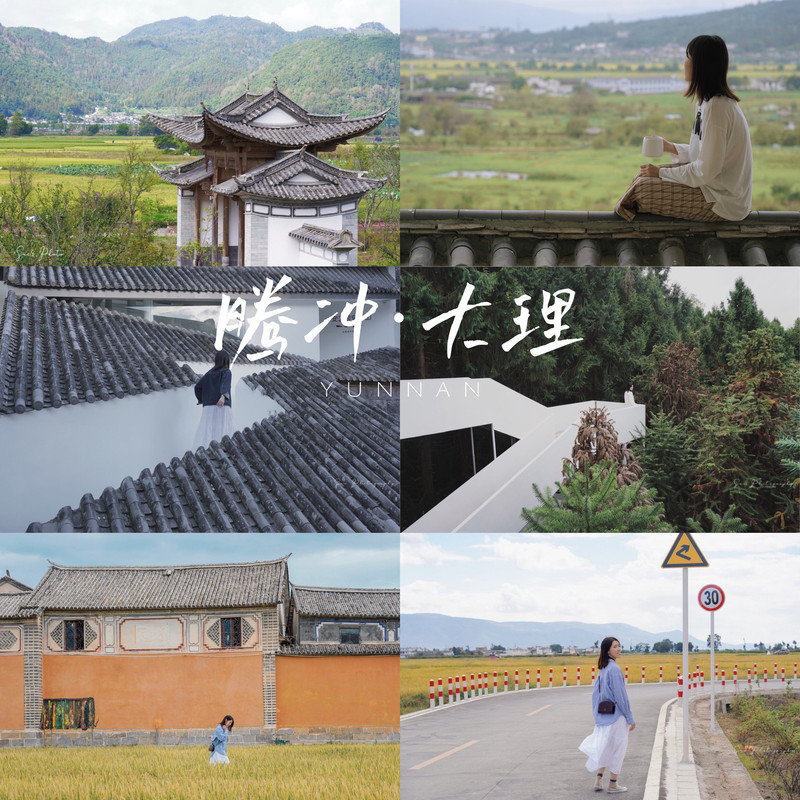
Heshun, an ancient town full of books
When it comes to Tengchong, although it has volcanic geothermal energy, the most worth exploring is Heshun Ancient Town. In the ancient town of Heshun, there is a sign that reads:
"There is a taste called Heshun. Warm as jade, good as water. In the ancient building complex surrounded by hot mountains and hot seas, the bells of merchants and horses echo, the books of farming and reading people float, the thoughts of popular philosophy are spread, and the tragic songs are left behind! It may be a pity not to experience the taste of Heshun once in your life."
Heshun Ancient Town is a quiet ancient city that a few people visit. Although "Northern Ireland" has made it famous, it is still a small town in a boudoir due to inconvenient transportation. The stone roads are lined up against the mountains, and the green tile roofs are scattered. Only by staying in a courtyard B & B for three days will you discover the beauty of this mountain city.
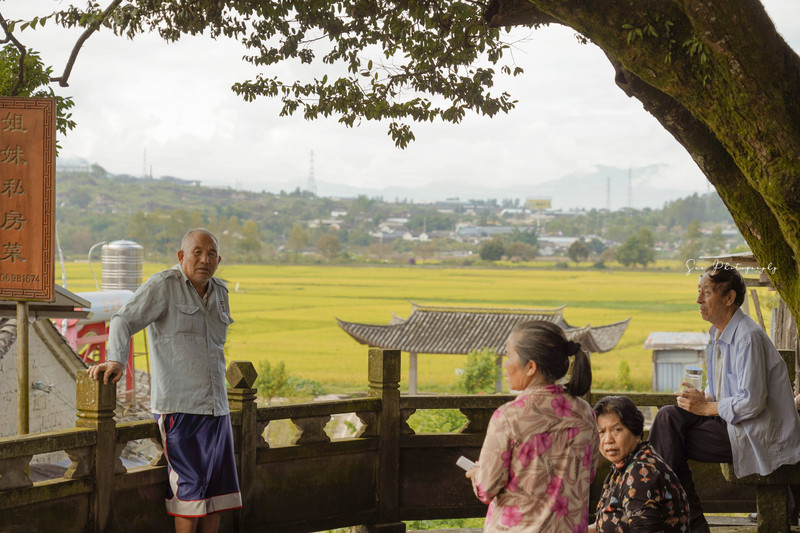
Most of the time in the ancient town belongs to nature, quiet and ordinary. Residents living in the ancient town gather in the compound to chat, watch the scenery, and chat with each other in their spare time. Life is nothing more than this.


Heshun's current population is about 6000, and there are more than 10,000 Heshun people living overseas, giving rise to the name "Hometown of Overseas Chinese". The emblem buildings, archways and ancestral halls, and cultural origins preserved everywhere in the ancient town are all the most precious existences here.

There is a vast rice field next to the ancient town that nourishes generations of residents here. Walking to the other side of the rice field, you can more clearly see the whole small city rising from the mountains, falling and growing upward.
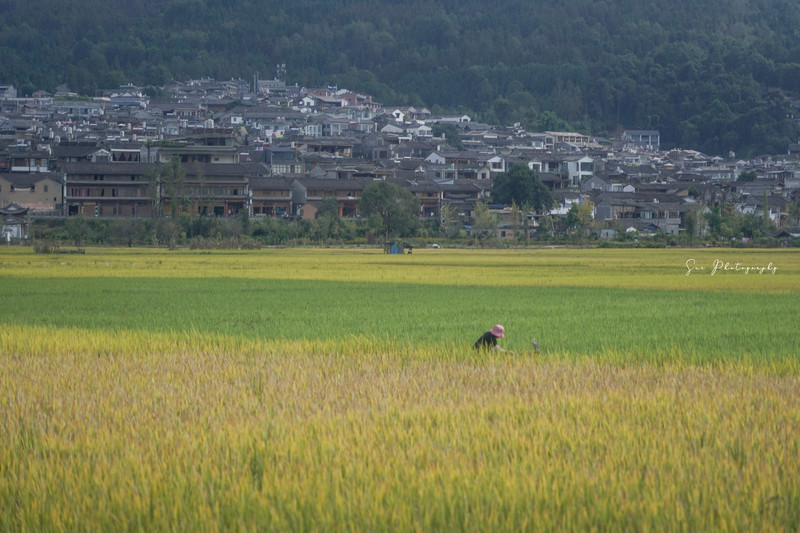


Tricycles rushing past in the early morning to purchase ingredients, breakfast shops with crackling charcoal fires cooking hot bait, sunshine suitable for hiding and taking a nap in the afternoon, and children happily emerging from school after school... are all ordinary scenes that are performed every day.
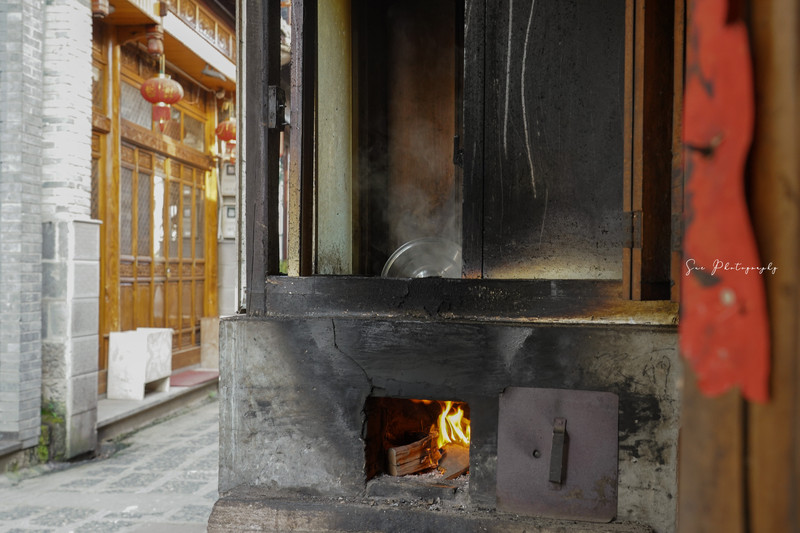





The entire rice field nestled in the ancient town of Heshun is really easy to photograph. The endless golden rice field has grown to a meter high during the harvest season, making the fresh city people who have been photographed here for a long time and unwilling to leave...








More than 400 years ago, villagers here began to "move to the barbarians". Since Heshun is only 70 kilometers away from Myanmar, there are the most people who go there to do jade business. Many of them have become very rich. After returning home in luxury, they built houses in Heshun and also invested in the construction of ancestral temples. Therefore, there are eight ancestral temples in the township, with different styles.
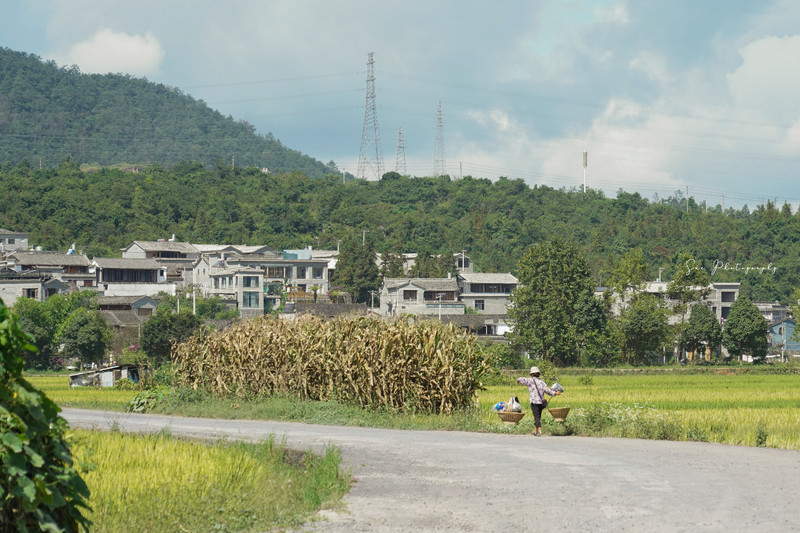


Walking along the small river around the city, you will find several laundry kiosks. Back then, most of the men in the village "went to the barbarians" to make family plans, while the women stayed in their hometowns to wash and cook, and take care of their families. In order to protect them from washing by the river, they raised funds to build laundry booths. Over time, there will be pavilions large and small along the way.




If you want to feel Heshun completely, it will take at least three days. Instead of rushing to check in every building attraction, you will leisurely walk through every stone road. The smoke in the morning, the tranquility in the afternoon, and the setting sun. The dusk, the starry sky at night... Especially after leaving the ancient town of Heshun, you will miss the little days here even more.
Strategy of Heshun Ancient Town
1. The original price of tickets for Heshun Ancient Town was 55 yuan, but now the half price is 27.5 yuan, including the historical buildings and attractions in the ancient town. You can enter and exit the ancient town within three days by saving the ticket stub or bringing your ID card to check the ticket.
2. There are many options for B & Bs in the ancient town. They are frugal. In fact, if you have enough time, you can stay in two houses and experience different experiences. B & Bs generally include pickups and downs, which can be picked up from the airport or from the city.
3. When it comes to B & Bs, except for some brand hotels that have their own drivers, local B & Bs generally cooperate with the motorcade, and the drivers are not their own. During pick-up, drivers usually ask if they need to charter buses to tour nearby attractions. The market price is 300 yuan a day. If you want to go to 2-3 nearby places and don't have a own car, charter buses are still relatively cost-effective. This depends on the individual, and the driver will not force you.
4. The nights in Heshun Ancient Town are particularly quiet, with almost no nightlife. There are several bars in the ancient town, but they may not be open every day. The restaurants usually close from 8 to 9 o'clock. Later, only one or two barbecue stalls will be left. There are no street lights at night, so it is recommended not to go too far at night.
5. The ancient town is full of stone roads. Sports shoes are recommended. If your luggage is relatively large, it is recommended not to book a too in-depth B & Bs, otherwise it will be an extraordinary test of foot strength.
6. Regarding the hot springs, we went to the Bailian Hot Spring Hotel next to the ancient town. Since the entire Tengchong Scenic Area was developed by Bailian, the environment of Bailian Hot Spring is also the best. There are few private soups in the hot springs here in Tengchong. Basically, we have to wear swimsuits to soak in different large pools. The hot spring water has no taste. If you want to soak in hot springs with the smell of sulfur, it is recommended to go to the Rehai Scenic Area to soak in it.
The small freshness of Beihai Wetland
The Beihai Wetland belongs to the volcanic barrier lake ecosystem. Water and grass are densely intertwined in the water and cycle to die and regenerate in the soil that is moist enough until a meadow is formed and floating on the water. The thousand-year-old volcanic barrier lake wetland has become a piece of Tengchong. Classic postcard.


Beihai Wetland Scenic Area is an ecological reserve surrounded by mountains. The lake water is as calm as a mirror, and water and grass grow wantonly. The scenic area is not big and can be completed in about two hours. Wetlands are rich in animal and plant species. Wildflowers bloom in spring and summer. Migratory birds come here for the winter in autumn and winter. It is a good choice to walk back and forth along the plank road, or take a cruise ship to the end and then walk back.
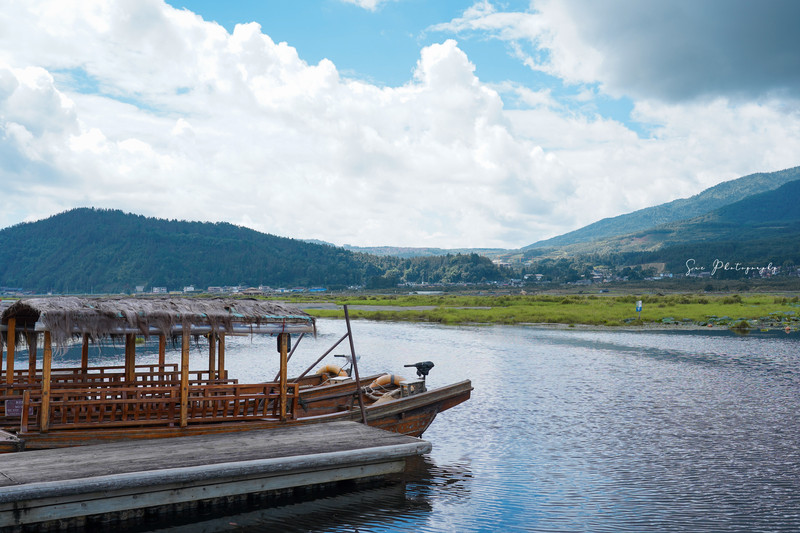
Tickets are purchased by the chartering master together. 80 yuan includes the experience of cruise ships and straw rowing, which is cheaper than buying the tickets directly.
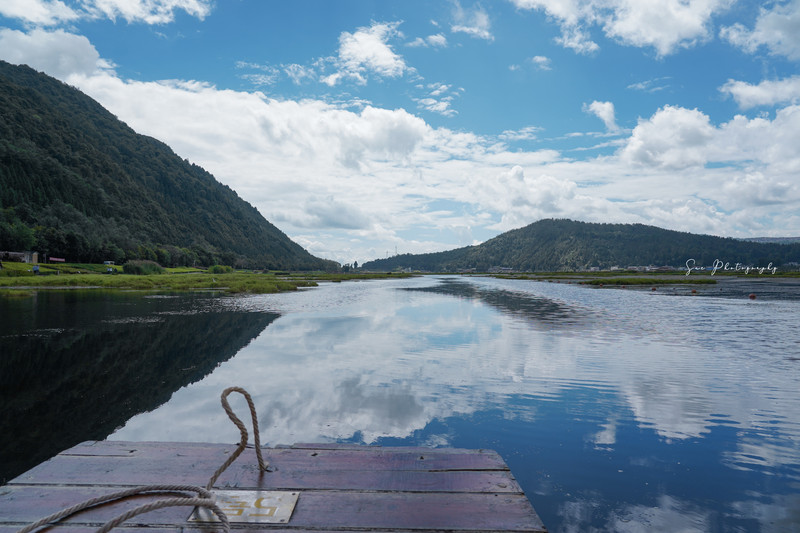
For people who have lived in cities for a long time, such green mountains and rivers are exactly what urbanites look up to.

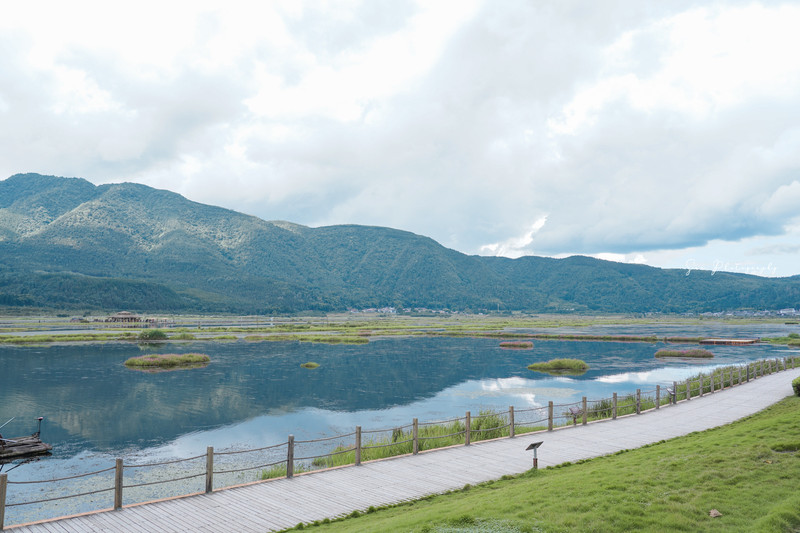
The entire wetland scenic area is long in shape, with a length of about 3 kilometers in and out. Cruise boats can really save some physical strength. Along the way, you will see some unknown birds. The one below should be an egret, stretching out. The neck is beautiful alone.

"Rich and beautiful water and grass" should be the most appropriate adjective for this place. When the boat slowly paddles the open and quiet lake, the water and grass flowing in the water can be clearly seen, and groups of wild ducks swim past the grass. It is such a beautiful scene.

These two charming blue ones are purple water chickens, which are relatively rare waterbirds in China.

When the cruise ship sailed to the last docking dock, the few small thatched huts under the lush mountains were like the lakes and mountains of Switzerland, which made people love the tranquility.


The grass raft experience area of Beihai Wetland can try the wonderful experience of floating on the water. A thick meadow replaces a bamboo raft. Three or four people can stand on it, use bamboo supports to control the direction, and move forward on the lake like a floating carpet.

Guidelines for Beihai Wetland Scenic Area
1. Opening hours: 8:30-19:00
2. Characteristics of the four seasons:
Spring-purple iris;
Summer-light Roman yarn reveals brightness and charm;
Autumn-The fragrance of linglian flowers, fish and shrimp play, and the light boats and bamboo rafts are swamped among them;
Winter-There are flocks of wild ducks, and migratory birds are flying and playing in the water;
3. Experience items: cruise ships, bamboo rafts, straw rafts, ancient fish cover
4. Duration of play: 2-3 hours
5. Ticket price: 55 yuan; ticket + cruise ship 80 yuan; ticket + bamboo raft 100 yuan; ticket + straw raft 120 yuan
Tengchong Hot Sea smells of sulfur
Coming out of the Beihai Wetland and then going to Atami takes about half an hour, and most charter drivers would suggest swimming together.
The hot sea is not a sea, but a geothermal hot spring area. From the moment you get off the bus, you can smell a strong sulfur smell. Passing through a row of Ministores at the entrance of the scenic spot, along the road are auntie who is chasing you to buy eggs. The eggs are bundled into a string with straw for 10 yuan each. It seems that if you don't buy a string and heat it in a big rolling pot, there is always a sense of ceremony, so I started the journey of a string of eggs through mountains and rivers.

A stream warm all year round runs through the entire valley, forming springs and ponds of large and small. Take a shuttle bus from the ticket office and go deep into the valley. You can only see wisps of white smoke rising from the mountains, which is somewhat fairy.
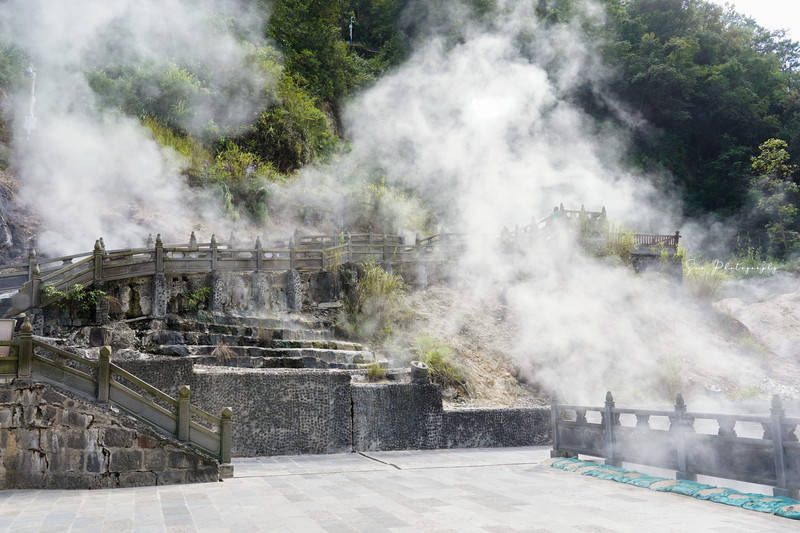
As I approached the direction of the smoke, the temperature of the air gradually rose, and beads of sweat began to appear on my forehead. The smell of sulfur floating in was strong and salty. The exposed rocks were covered with white calcifications. There were also small holes on the ground from time to time for ventilation. Smoke columns rose up from the holes. I was a little timid, but I saw the sign in the explosion area and didn't dare to stay long.


It's also magical. There are surging springs that are steaming and flowing cold streams and waterfalls in this valley. Why the two do not affect each other is also a wonder of nature.

Continue to trek upwards through Xianren Pavilion, pass through the hot spring area, pass through several hot spring pools, and climb dozens of steps to reach Atami's iconic attraction,"Big Rolling Pot".
There are three spray holes at the bottom of the big rolling pan, which spray out hot water at 96 degrees, like boiled water. Even the ground here is hot. If you want to sit on the steps and rest for a while, you will be repelled by the temperature on the ground.

Signs are hung everywhere in the scenic area,"No boiling eggs in springs". After the Long March, my string of eggs finally found a home in the boiling egg experience area next to the big rolling pan. It is said to be boiled, but in fact it should be steamed with high-temperature steam. Throw the string into the cage for about 10 minutes, the eggs were fully cooked, and the dream of a beautiful hot spring egg was long shattered.
I still want to leave a memorial to the journey of this bunch of eggs.

As one of China's three major geothermal areas, Rehai Scenic Area is the place with the most concentrated geothermal energy in Tengchong. This magical landscape is still worth a visit, but whether to soak in hot springs here depends from person to person.
Tips for Rehai Scenic Area
1. The original price of the ticket is 60 yuan, half price during the year. If you no longer have enough physical strength, it is recommended to buy a combination of scenic spot tickets + battery tickets. It takes at least 1.5 kilometers to walk from the ticket office to the elite section of the scenic spot. Battery cars mainly save this distance.
2. It takes about 1.5 kilometers to climb from Lion Head Waterfall to Atami Daoguo, and it takes more than half an hour to climb while walking.
3. Atami can swim with the volcano or arrange it with the Beihai Wetland. One day is completely enough. It is recommended to eat a Chaowei copper spoon beef in the city at night!
4. There is a place to experience foot soaking next to the hot spring pot. If you want to go to the hot spring, it is recommended that you can buy tickets for the scenic spot + hot spring + battery cart from the B & B, and also bring your swimsuit (you can also buy it at the hot spring soak place, but the style is emmm)
It's human food
[Aunt Cuncun Thin Bean Powder]
Local people's breakfast usually starts with a bowl of hot thin soy flour,"cooked the same day and eaten the same day". There is no food after the morning, and Aunt Cunn is no exception. It was already afternoon when we came, so we ordered a large slice of soy flour as a snack. Aunt Cuncun asked us to come back for breakfast the next day for thin soy flour, and we nodded frequently.


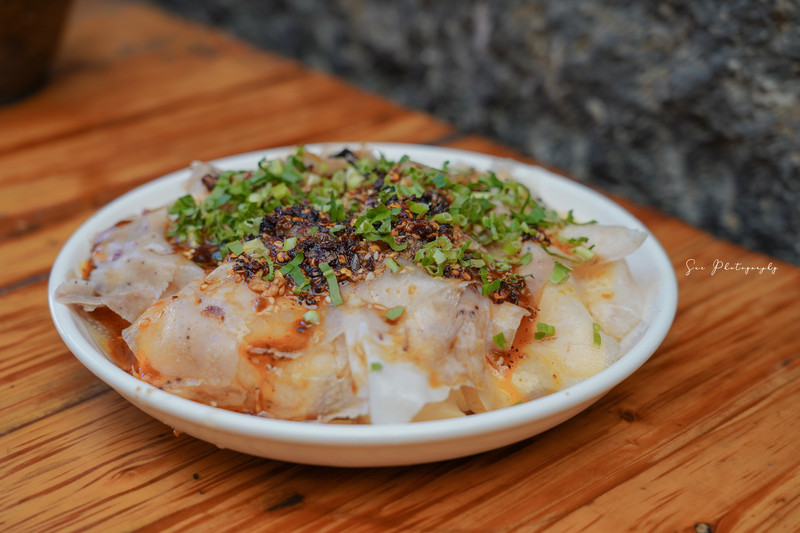
The big slices are pork slices cut as thin as cicada wings. They are light and refreshing. They are seasoned with chili powder and are combined with jelly-like soy flour to inhale them in one gulp. They want to taste one bite after another.
[Niu's Family Copper Pepper Beef]


In the ancient town of Heshun, a beef hot pot recommended by the little lady at B & B has a pot of thick beef bone soup in a large copper ladle. It is full of beef offal, beef, and cowhide. I don't remember how many kilograms I ordered, but I only remember that beef can always be picked out in the copper ladle. Beef and beef offal are particularly delicious. It is not like the Chaoshan beef hot pot that melts in the mouth. It is a bit tough in comparison, but full of flavor.
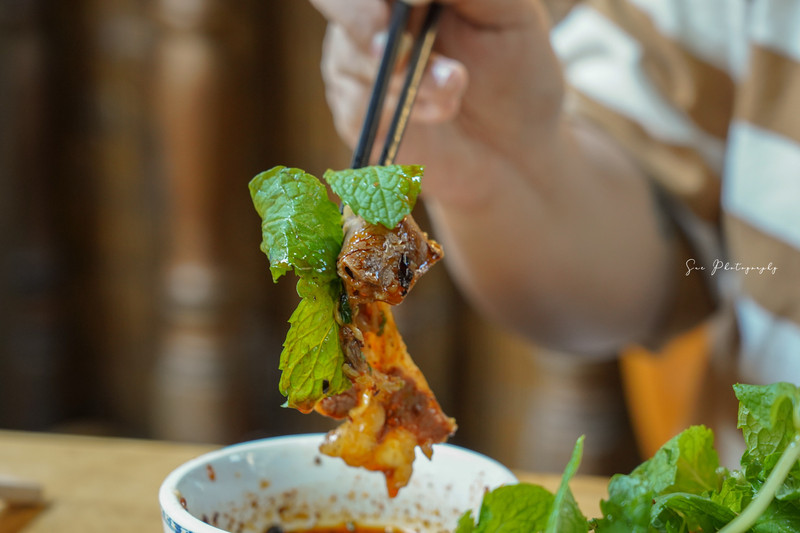
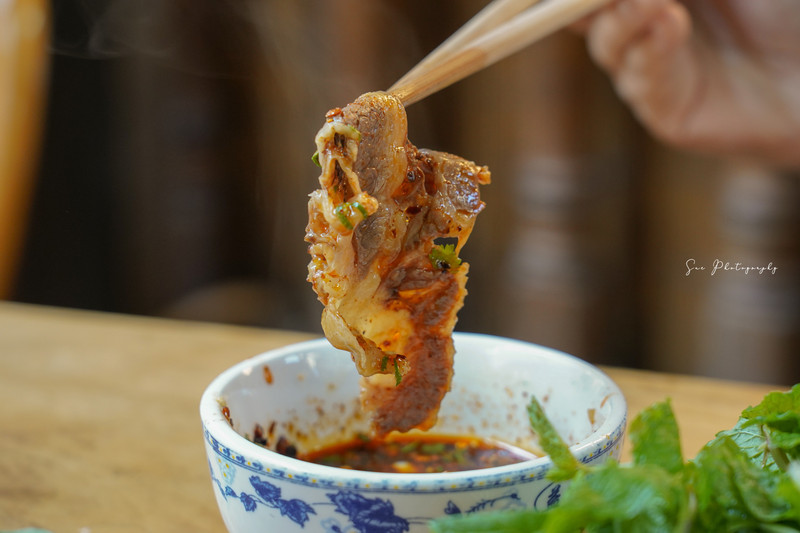
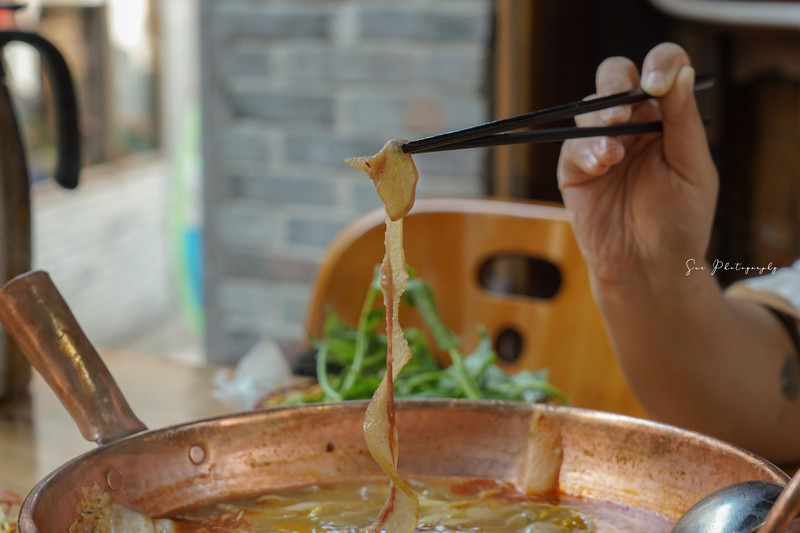
[Lin Li Family Restaurant]

It is an ordinary family restaurant with an open living room and a two-story building. The store owner sets up a dining table in his yard, which is a place for local people to eat. There was a home-cooked menu handwritten on a small blackboard, and a freezer on the side placed more than a dozen unknown fungi. The simple landlady was busy in the kitchen, calling the boss to order for us. The two of them ordered four dishes and ate very satisfied.

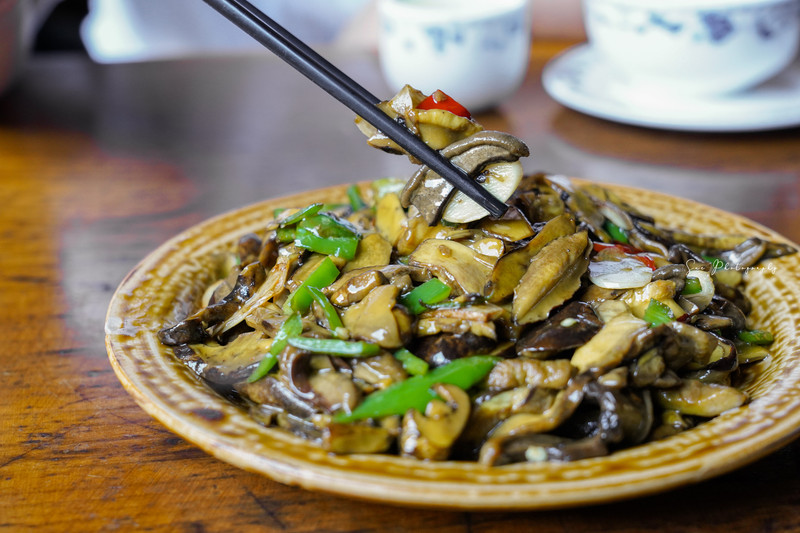
I had forgotten what seasonal fungus it was. It was fresh and soft in the mouth, and the aroma of fungus burst out when stir-fried on high fire.

Stir fry Tengchong small horn melons. Small horn melons are unique vegetables in Tengchong. They look like peppers but are not spicy, and have a fresh and delicious taste.
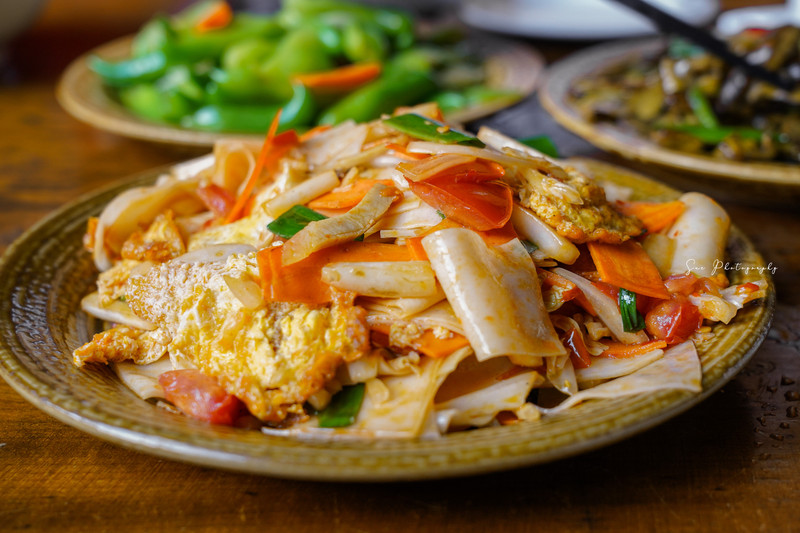
In restaurants in Tengchong, you can see the special dish of Da Jiujia almost everywhere. Da Jiujia is actually fried bait cakes (fried noodles). It was a family where the emperor fled to Tengchong during the Ming Dynasty. After eating fried bait cakes, he initiated this famous Da Jiujia with emotion.


I always have to give it a try when I come here. Because of the addition of tomatoes, eggs, pickles, bacon, sour, sweet, salty and spicy meat, it is quite fresh, but the bait pieces are also very full and can almost be used as a staple food.
[Chaowei Tongpiao Beef Restaurant]

After eating a meal of copper scoop beef in the ancient town, I couldn't forget it, and was recommended by a friend to go to a more authentic local copper scoop beef restaurant. Sure enough, Chao Wei's beef soup is stronger and the beef is larger. If I can only eat one, then I unconditionally recommend Chao Wei!
A large plate of seasoning will be served at each table.

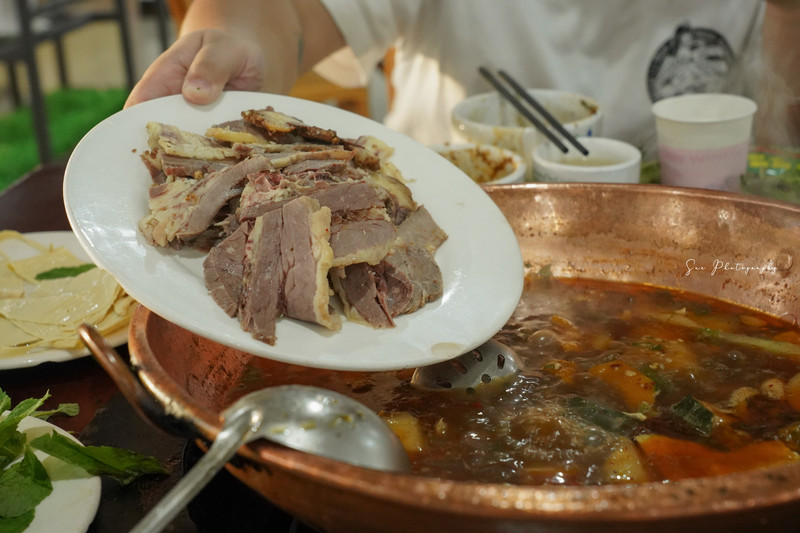
The perfect combination of spicy oil and beef soup, rolling on the carbon stove, making the joy of eating meat in a big gulp in the cool weather makes people feel happy.

[Barbecue stall in Heshun Ancient Town]


The barbecue stalls set up in the ancient town after night always gather people from all over the world. What they eat is not the amazing delicacy, but the rare feeling of friends getting together.
The sister of the B & B told us that we must eat pickled food for barbecues, because that is the specialty of Dian-style barbecues. Marinated chicken wings, chicken feet, grilled fish, and steamed tofu are must-order.

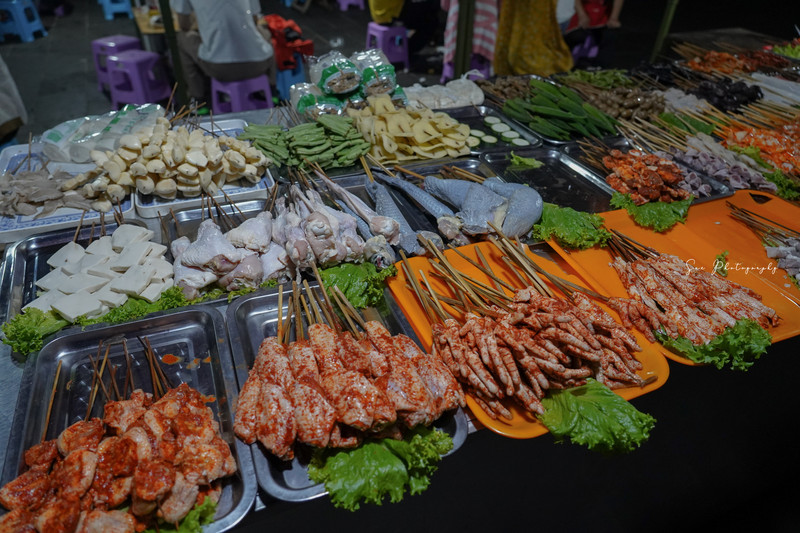
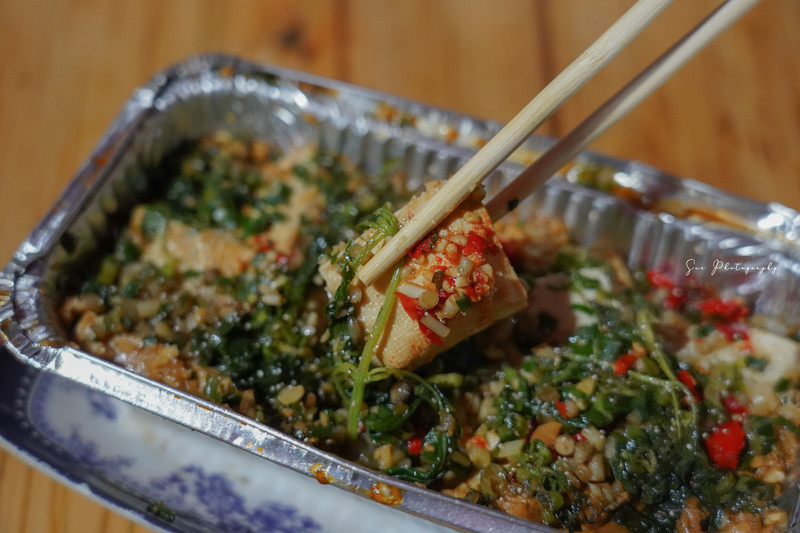
The delicious flavor of Baozhi tofu is tempting, and its spiciality is particularly challenging for Cantonese people. However, he still finished it with a gulp of beer while sipping beer.


[Sister Hua Private Kitchen]


Sister Hua's private restaurant that requires an appointment one day in advance is an online celebrity shop in the ancient town of Tengchong. It charges only 158 yuan per person per head. The dishes are provided according to the ingredients of the season. There are about 10 dishes. The dishes are exquisite and delicious, and the environment is also very good. There are many home-brewed wines in Sister Hua's shop that you can taste if you are interested, and many people buy them back in a pot.
Sister Hua is an authentic Heshun person. The restaurant is located in her old house that has lasted nearly 300 years. It has a typical courtyard structure. Both sides of the entrance are filled with wine jars. The stone slabs and wooden furniture in the old house are full of a sense of age.
In a meal where Sister Hua ate, private dishes were served one after another, from pre-meal fruits and snacks, to big fish and meat, to desserts after the meal. When you finish one dish, the next dish will be delivered in time. Come up, this exquisiteness and thoughtfulness are also something that makes people miss.

Tea gardens and thatched huts in the distant mountains
There is a green tea garden hidden in the mountains in the quiet Tengchong. Due to inconvenient transportation, most of them are self-driving travelers, and the experience is very comfortable! The owner of the tea garden built a thatched hut and camping site here. It is the most comfortable place to taste a delicious food and a cup of hot tea in the quiet sea of tea.
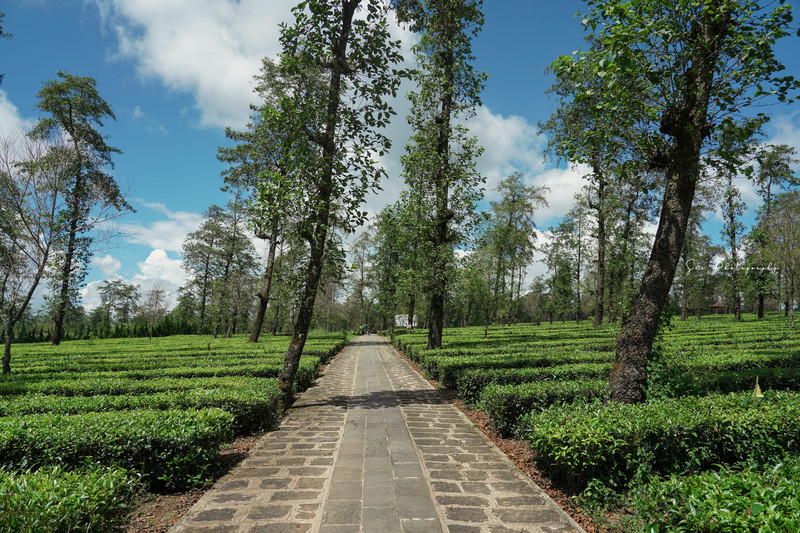

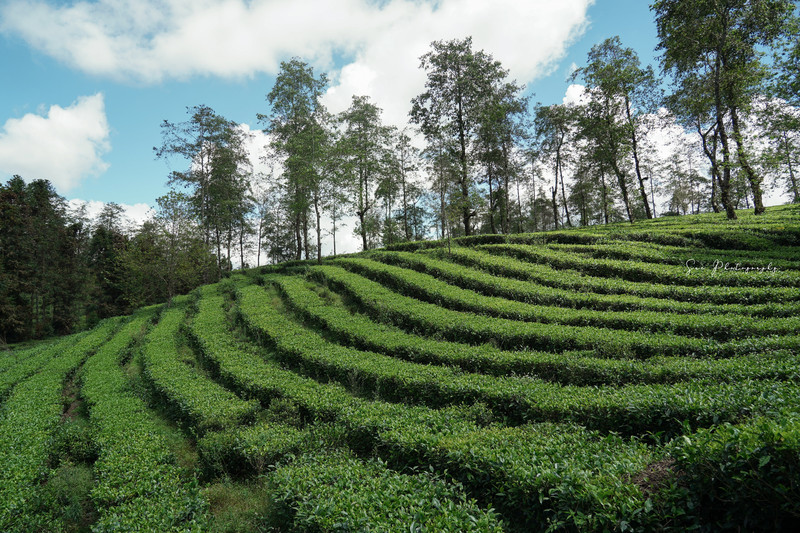

Walking all the way into the tea garden from the small village, the rolling mountains are already very eye-catching. When you turn to the end, you can see a wooden house covered with thatched grass. For a moment, it was like in the Japanese countryside. Walking up the thatched house is hidden in the forest. Glass restaurant.


The restaurant in the tea garden is 200 yuan for two people, and 68 yuan for one person with more than three people. In fact, it is more cost-effective for more people, and there is no need to order. The dishes are served according to the ingredients of the season. There are about eight or nine dishes. The hump beef pot is really delicious. It tastes very good, and the dishes are large, and you can satisfy yourself in one bite.
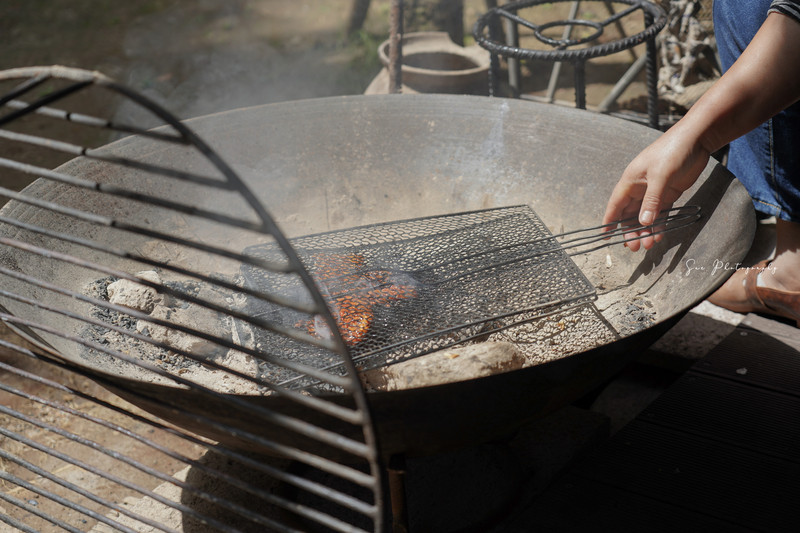

The soup in the hump beef pot is rich, and the beef is stewed fragrant and soft, which is super delicious.


You can drink freshly brewed tea for free in the tea tasting area after meals. If you need to experience the entire process of tea roasting (including lighting, grinding, and tea brewing), you will need to pay an extra fee. This depends on the time and personal choice. If you have enough time, you may wish to experience it. Take a look at the ancient way of making tea.
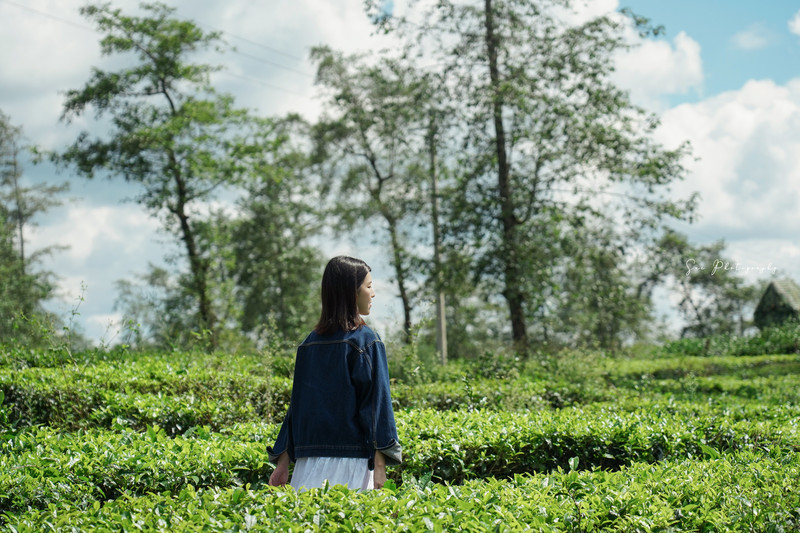
The large tea garden outside the thatched house stretches into the distance. When it is sunny, it is glowing green, and when it is rainy, it has a unique artistic conception. Walking into the tea garden path and slowly experiencing it, the photos are also very beautiful.



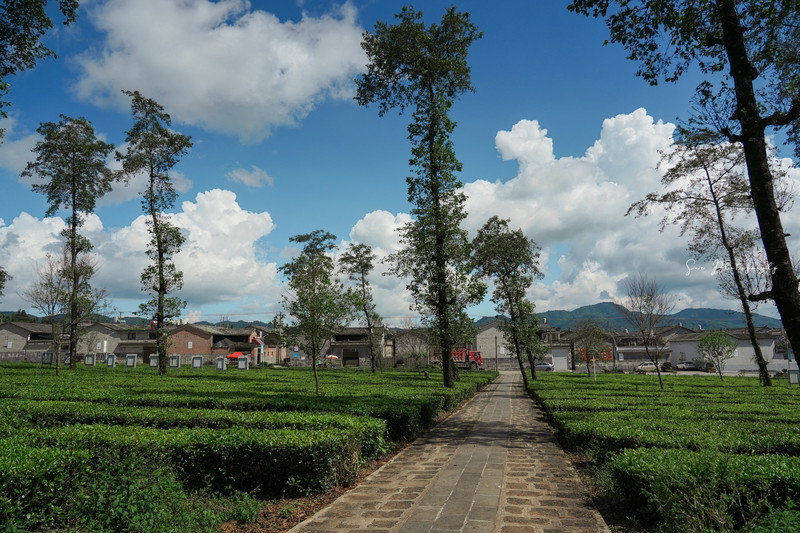
Tengchong City Dadi Tea Sea Camping Base
Transportation: You can drive by yourself, charter a car, or take a taxi
Time: 9:30-21:00 (You can have meals regardless of the time period. It is recommended to call in advance to inquire)
The four seasons are like this, and peace is as good as night
In Tengchong, we stayed in a boutique B & B "Anzhiruoshu·Mountain" that has been planted for a long time. It is located on an old street extending to the foot of the ancient town of Heshun. It looked aloof from the world, just like the life we yearn for!

This is a B & B built by Harvard architects, with a bright white zig-zag entrance cut into a traditional tiled roof, and the slope extends upwards into a green landscape surrounded by forest. The whole thing is like a white hill growing upward. It is full of design and extremely eye-catching.

The rooms are like living in a landscape painting. Each room has a poetic name and has different designs, but they all have large floor-to-ceiling windows overlooking the fields and Heshun ancient town not far away. The intelligent appliances in the room have many details that are very considerate.

The B & B also arranges exclusive butlers, who can pick up and drop off during check-in and departure. Afternoon tea can be enjoyed in public areas full of spatial design, or in the landscape location on the roof. Two bowls of peach gum snow ears were also delivered in the evening, and breakfast can also be delivered to the room.
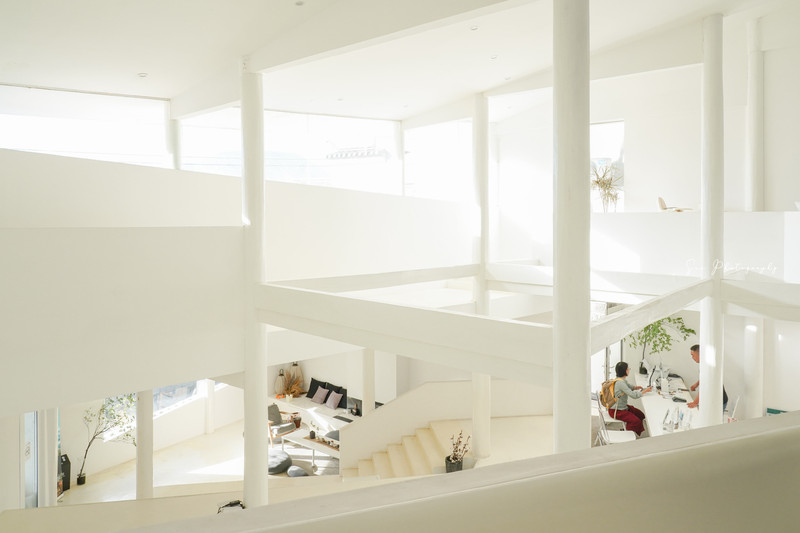
The hotel lobby is also a coffee shop. You can enjoy afternoon tea without checking in. Enjoy the master-level design. The tree-like pillars are scattered and supported by the sun. The pure white picture is very gentle.

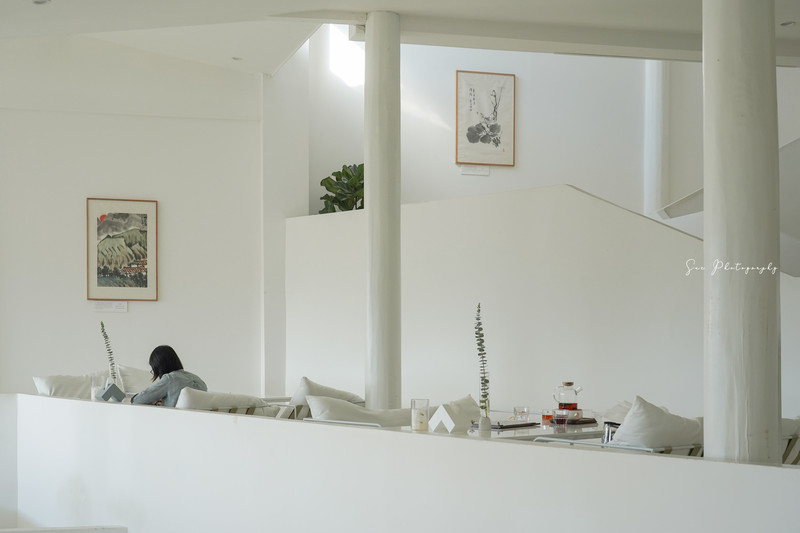
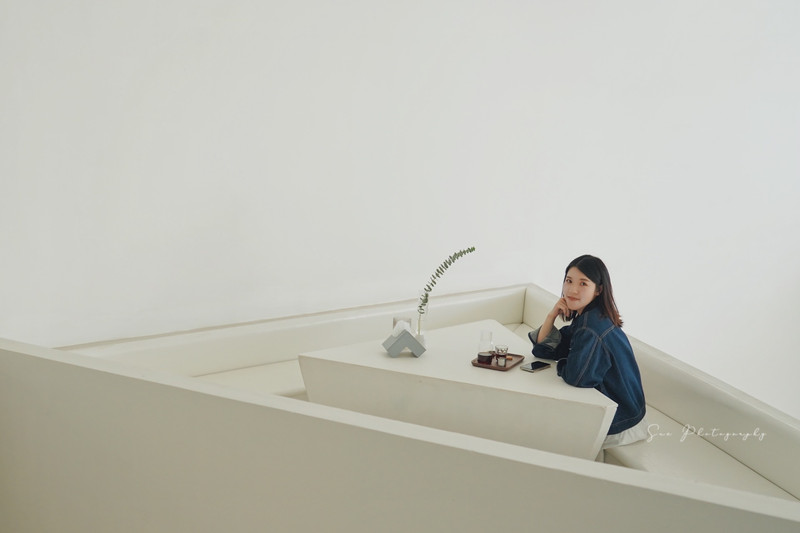
The light and shadow every morning and afternoon are intoxicating. The scattered design gives the sun space to cast at will. The light and shadow are so beautiful! Watching the sunset set from the sky at the foot of the mountain at sunset is even more charming. It is really a place to rest in a daze and waste time.
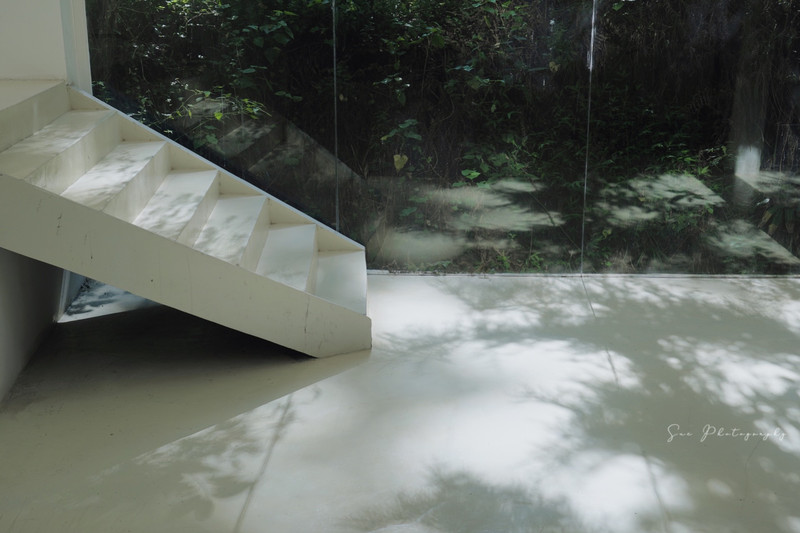
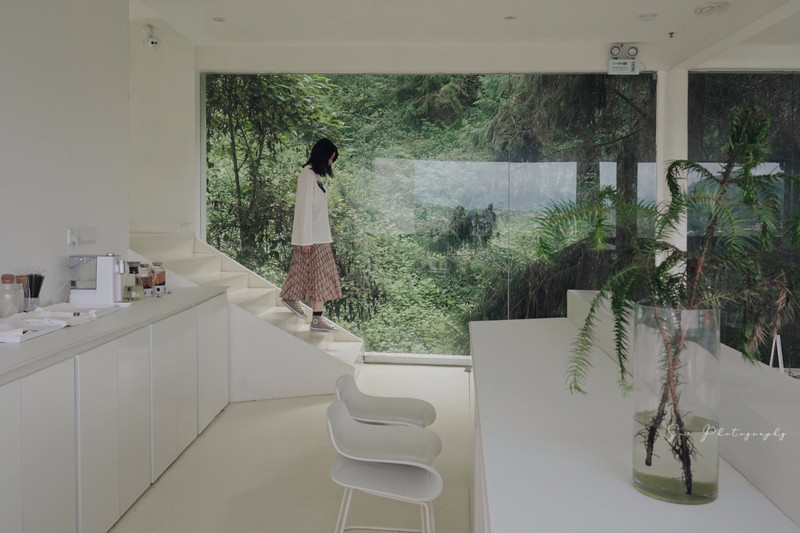

Follow the white steps to the third floor of the B & B, sit on the roof tiles and look out at the distant fields and mountain city. At this moment, this is the most comfortable time.




There are several photo spots in the B & B, and you can take photos at random and make a big movie.
① The "roof" road extending from the door (backlit in the morning, suitable for shooting in the afternoon)
② Outdoor white stairs leading to the third floor (special Mori Department)
③ The public space on the third floor (you can sit on the roof and remove the tiles on the roof)
④ In the morning, in the corridor of the room area, the mottled light and shadow are also very beautiful
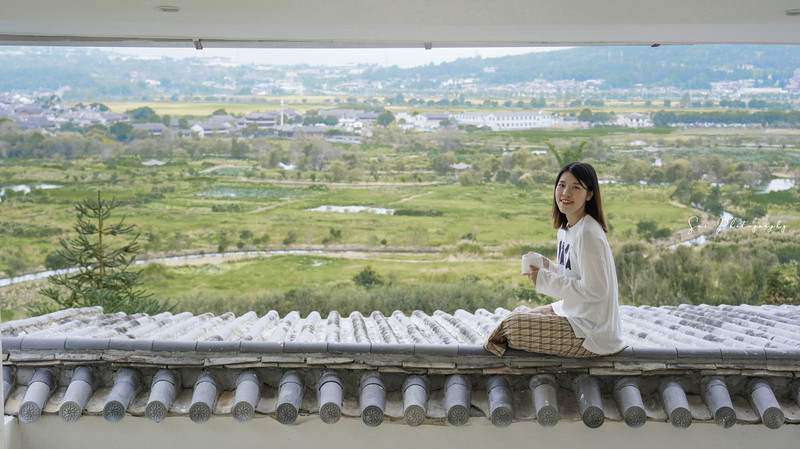
[B & B Name] Anzhiruosu Mountain Panorama Hot Spring Hotel
[B & B Address] No. 41, Shuiduishang Second Community, Heshun Town
[Transportation] It is about half an hour's drive from the airport. The housekeeper can pick up and drop off from the airport or the city. It takes about 20 minutes to walk to the center of the ancient town.
Baoshan, Xinzhai Coffee Estate
On the way from Tengchong to Dali, I stopped in Baoshan for one night because of my childish obsession with going to the coffee farm. The reason why it was called childish was that it was not the coffee season, and under the guise of "everyone was here", I still wanted to take a look, even though the transportation was inconvenient, and I even spent a lot of money to take a taxi back to the city that night.
Baoshan is a small city. The coffee industry is the backbone of most of the economy here. Xinzhai Village, Lujiangba, more than an hour away from the city center, is called the "No. 1 Coffee Village in China" because of its vast coffee planting area. Xinzhai Village in Lujiangba has many coffee farms, coffee experience halls, mountains with large coffee trees planted, and coffee processing stations in the mountains... For coffee lovers, exploring the source is the most exciting thing. It's over.
Among them, the most must-see is Xinzhai Coffee Estate. A Beijing-based architect Hua Li used 760,000 bricks to create a space integrating mountains, water, art and humanities. It is not a coffee museum. Xinzhai Coffee Estate was even selected as one of the top ten works of ArchDaily's "China Architecture Annual Awards 2020". Of course, this time it was also for it.
I originally wanted to finish visiting Xinzhai Coffee Estate and visit other nearby coffee farms, but I didn't do enough homework and found that it was too late.
It is necessary to remind you that Xinzhai Coffee Estate is not in Xinzhai Village, but in Bawan. Most of the other scattered coffee estates are in Xinzhai Village. Bawan and Xinzhai Village are two different hills, about half a distance away. More than an hour's drive.
In fact, as long as there is enough time and a car, it is no problem to run two mountains a day. Unfortunately, when we went there, it was already afternoon. We had to finish visiting Xinzhai Coffee Estate and then get up and go down the mountain back to the city, leaving a regret.



The former site of Xinzhai Coffee Estate was once a courtyard that had been abandoned for many years. It was the former office of the township government. Under the architect's bold concept, it was transformed into a retro and fashionable coffee estate. The manor consists of three parts: a movie theater built in the 1980s, a two-story red brick cafe, and a three-story main building with storage and processing as its main functions.



In the afternoon with mottled light and shadow, you can walk around the coffee estate. With tall arched corridors, open and overlooking scenery, and scattered spaces with a sense of design, you can shoot large films at any time.

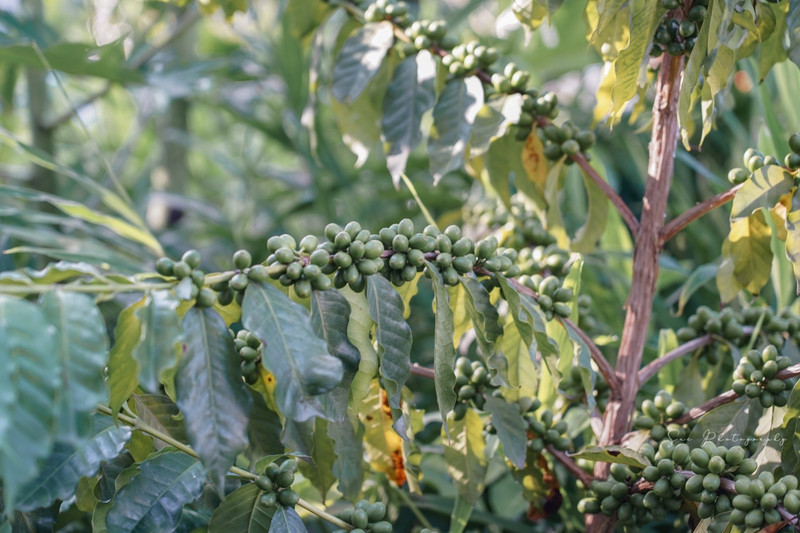

There is also a small coffee museum hidden in the manor, which displays hundreds of coffee-related objects in Lujiangba. From coffee varieties to processing equipment, from viewing and learning to hands-on, we understand how a coffee bean transforms into a cup. The whole process of aroma and mellow, traces the history of folk coffee in Lujiangba over the decades of coffee planting.

Looking at the buildings in the manor and having a cup of coffee, although the journey is a bit long, seems worth it.

A 250-year-old banyan tree is also the "treasure of the town" here.
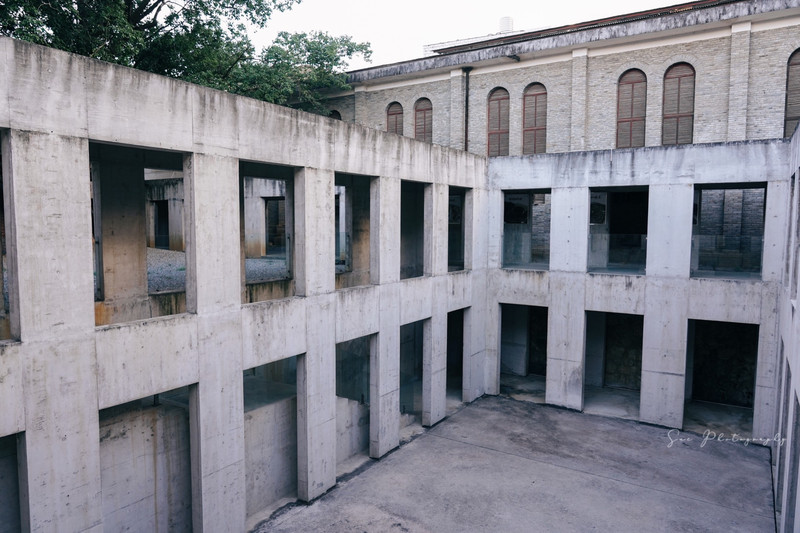
Vintage long windows dotted with gray brick walls are the exterior walls of an abandoned movie theater.

From afternoon to evening, the light has gradually dissipated, and the nostalgia of the entire building has become stronger.
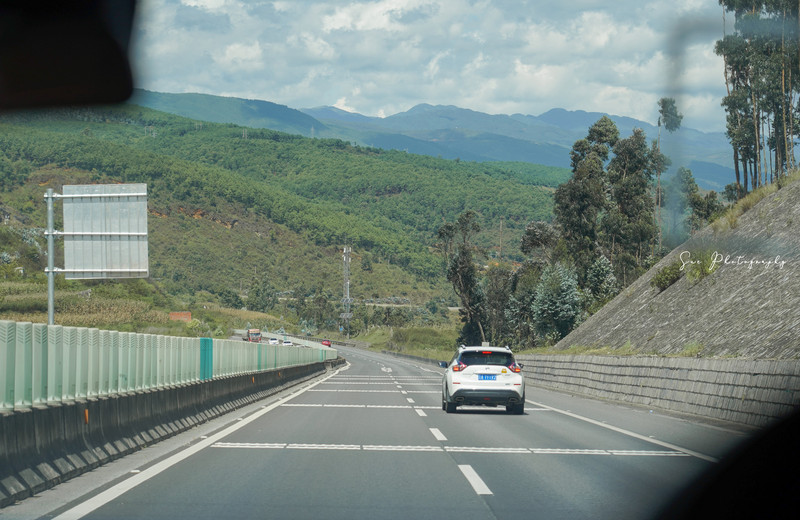
On the way from the city to the manor, there are rolling mountains in the distance.
A few TIPS about visiting Xinzhai Coffee Estate
① Drive yourself! Make sure you drive your own car because public transportation is so inconvenient (don't ask me how I know)
② Xinzhai Coffee Estate is not big. It takes about an hour to visit and finish taking photos. Moreover, there are old villages nearby and there are no other places to go. If you want to visit more coffee farms, it is recommended to go there early and finish watching Xinzhai Coffee Estate. You can drive to Xinzhai Village (About half an hour's drive), there are many coffee farms in Xinzhai Village, and there are also good landscapes and good coffee to taste. Here are a few coffee farms that I originally wanted to visit: Bryan Coffee Experience Center, Qiteng Cultural Coffee Experience Hall, Beaton Coffee Estate.
③ The road up the mountain by driving by yourself is difficult and there are many corners. It is recommended to have an old driver driving.
④ If you have more time, you can go to Xinzhai Village in the morning, go to Xinzhai Coffee Manor in the afternoon, and stay at a B & B in the manor for one night. The experience will be better.
Dali, some thoughts on visiting again
When I first came to Dali, I was a student. Compared with the bustling ancient city of Lijiang, the ancient city of Dali is like a clear stream, with wide stone streets, lazy afternoons, and slow-paced lifestyle... I have always maintained that longing for Dali.
After seven or eight years, it seems that we have become a little unfamiliar. Restaurants and shops have become dense, vehicles and scooters are filling the roads, and markets and art spaces are dazzling. Perhaps it is due to the holidays, the ancient city is also crowded with people, especially the noise and well-lit shop signs after night, which makes people feel a little enthusiastic.
The ancient city of Dali finally followed the trend of commercialization, and life in the ancient city was no different from that in the city. Milk tea bars lined up on the street, and Ministores were doing a booming business. Merchants made money here, and tourists played here. It was fun, and those leisurely, lazy, and priceless times in the past gradually became less.
It's not that commercialization is not good. After all, we are just short-term passers-by, not long-term masters in Dali. For the local people, living standards have improved, and the accelerated economic development has some benefits. The collision of old and new cultures may have new sparks, and for passers-by, we may need more time to adapt.
If you yearn for Dali's carefree and slow life and yearn for this utopia, it is recommended to avoid holidays, come during the off-season, take a walk along the Erhai Lake, walk through the mottled years of the ancient city, and see the deep starry sky of Dali. This trip is worth it.
Dali is still the same Dali, but in a different way.


Various markets are the best embodiment of the lifestyle of the new Dali people. Countless markets such as the Bed Sheet Factory Art District, Foreign Street Market, and Four Seasons Market are staged every week. The most lively one should be the Foreign Street Market. Because there are many mobile stalls and both sides of Foreign Street are full of various small commodities. If you want to pursue an artistic market, Four Seasons Market or the Bed Sheet Factory will be more suitable.


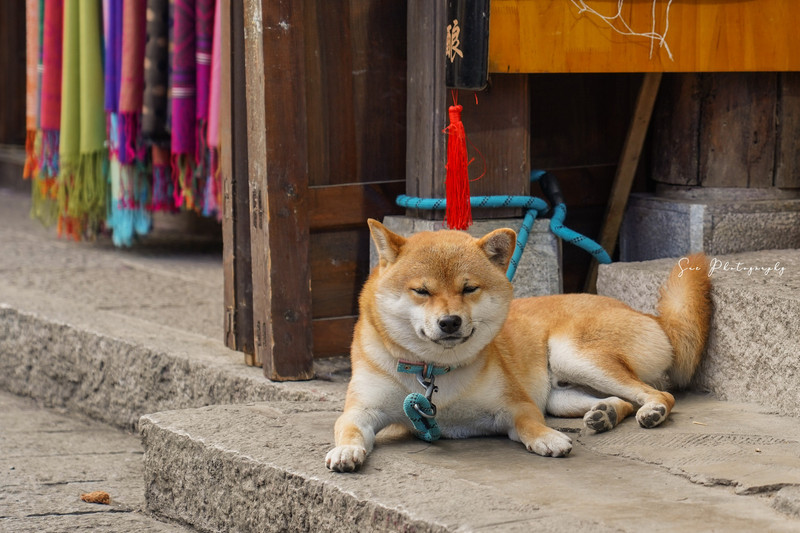

While driving a scooter around the ancient city, I passed this strange building and took a closer look. It turned out to be Yang Liping Grand Theater.
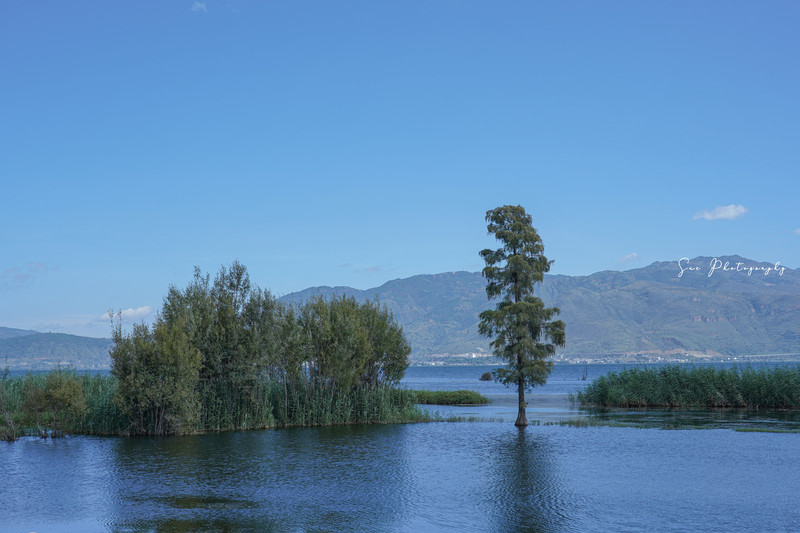



We didn't take the classic Erhai Line, but just drove a scooter to the Erhai Lake to have a look. Before setting off, we wanted to stay in the Shuanglang seaside B & B, but we were persuaded to cancel it by doubling the holiday price. The holiday travel experience will always be discounted. I have experienced it hard in Dali, Yunnan.

Putting aside the costumes of holidays, Dali on weekdays should still be the country of dreams. I really hope so. After all, we also encountered double rainbows!
In the ancient city of Dali, I recommend a delicious specialty Dai pilaf [Gu Style Stewed Private Kitchen]
The food is not afraid of deep alleys. The store is not big but is often crowded. Gu's pilaf rice is full of color, aroma, and the portions are large and authentic. The boss will recommend the appropriate portions according to the number of people dining. In addition to pilaf rice, you can also try their Bao roast chicken foot tendons. It is too delicious and chewy, with full points of praise!





Address: No. 383, Qingshi Bridge, lower section of Yuer Road, Dali (the door is relatively small and not easy to find)
Business hours: 11:30--14:00 16:30--20:30

In Dali, we also visited a thousand-year-old village.

Fengyangyi Village has the only historic site left of the Dian-Tibet Tea and Horse Ancient Road in Dali. From the head of the village to the end of the village, nearly a thousand meters of stone roads polished smoothly with hooves and human feet are preserved. Occasionally, villagers pull a few horses at the head of the village. Walking is actually a better way.

On both sides of the stone road are dilapidated old houses, the walls have faded and fallen, and the red bricks are exposed. While it is very clean, it is also full of loneliness and vicissitudes, as if they have been completely forgotten.
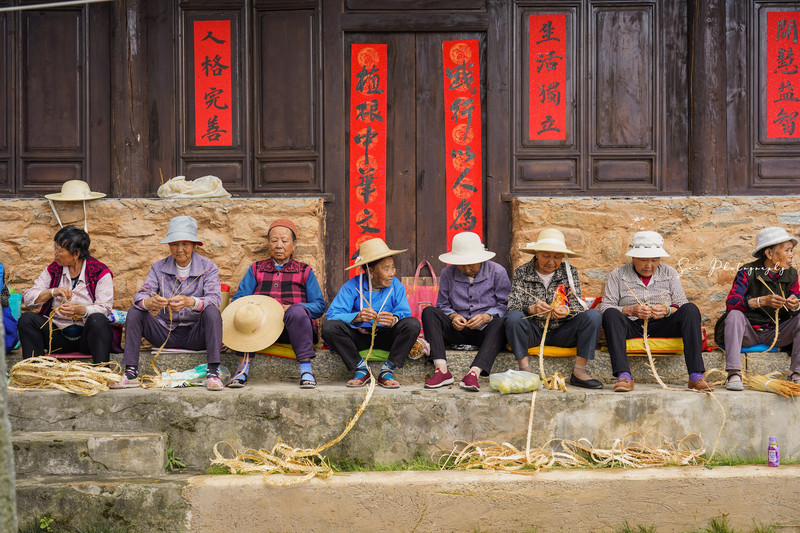
I met a group of old ladies, weaving straw hats under the dilapidated eaves with different looks, chatting around, immersed in work, or closing my eyes to rest. This is the most beautiful scene I think.

The main road in Fengyangyi Village is actually not long. Those dilapidated stone houses may not be repaired or rebuilt one day. I hope the stories and storms of the past will be left behind for a long time.

I ate a warm bowl of vegetarian vegetarian rice
I can't help but talk about the thunder I stepped on in Dali.
Almost anyone who clicks through the Dali TO DO List will see one: Go to Jizhao Temple for a vegetarian meal.
So with the beautiful idea of being able to experience the tranquility of the temple, we went to this niche attraction "Jizhao Nunan", thinking that we could just have a vegetarian meal when arriving at noon without rushing too early. The steep mountain road lasted about half an hour and made people breathless. It was 12:30 when they reached the gate of Jizhao Nunnery, but they were stunned by the crowd of people at Jizhao Nunnery. This so-called niche attraction has become a check-in-style flowing attraction.
From the entrance to the inner courtyard, every corner was filled with people, giving it the subtle feeling of a large canteen. When we went to ask the people in the temple where we could get rice, we were told that lunch was out and had to wait until dinner time. At that time, my mood was like thunder. The staff also told us that many people came up to line up early in the morning, and some came up alone to help a group of people buy it, so they would be sold out very early. Hearing that we were still hungry here, there was only a hint of helplessness on our faces. We didn't have the heart to take a good look at the courtyard.
This is not the state I want to eat vegetarian food. In my imagination, I don't want to visit the temple so deliberately for a vegetarian meal and leave after leaving the temple.




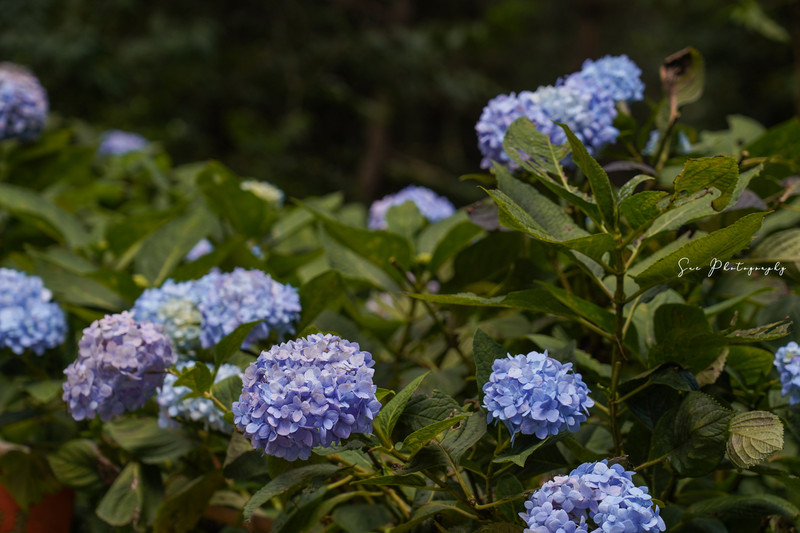
Fortunately, when the hungry man came down the mountain in an irritable mood, he saw a sign reading vegetarian food in Gantong Temple halfway up the mountain. It was past 1 o'clock in the afternoon. He was lucky enough to go in and ask. Unexpectedly, there is also a simple fasting room at the back door of the sparsely populated Gantong Temple. There are sporadic guests sitting on several tables. I think these may be guests from Jizhao Nunnery.
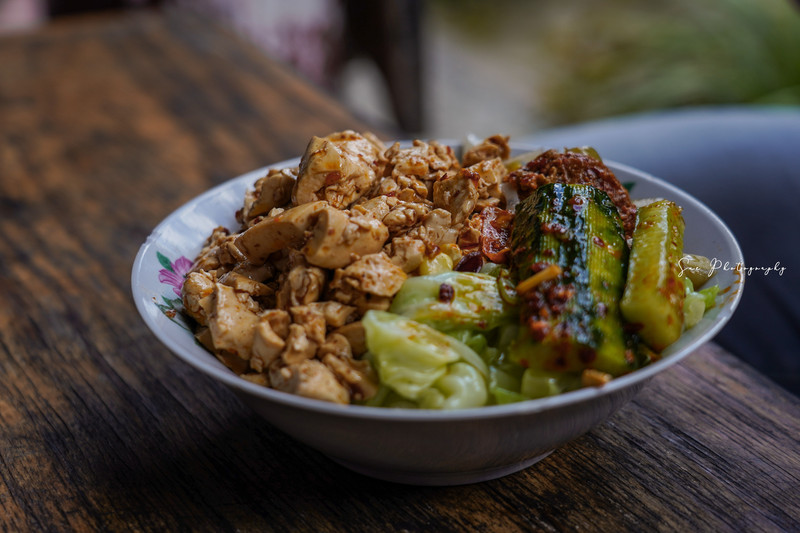
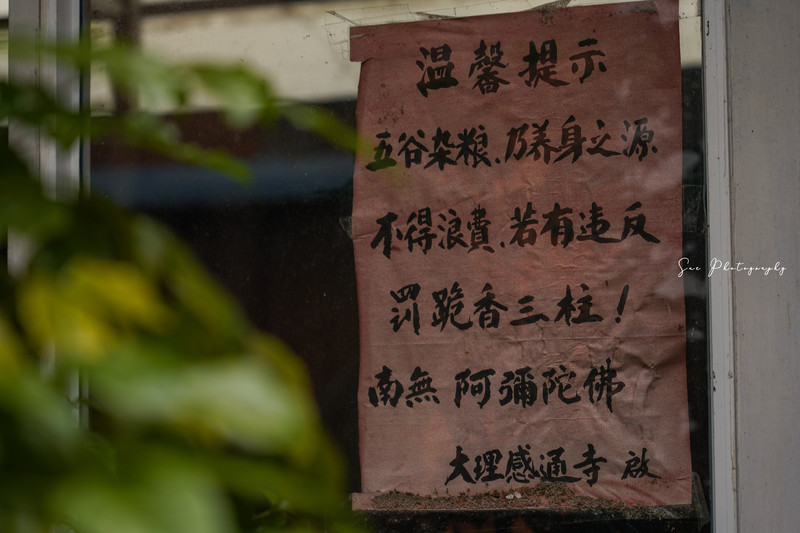
Although there were not many dishes left, there were also my favorite stir-fried tofu, stir-fried cabbage, and potato chips. The moment I held a bowl of hot rice in my hand, I was grateful and shed tears. I silently finished it without a grain of rice left. After eating, I looked up and saw the words posted on the Zhai room and thought,"Good luck, Amitabha Buddha". Fortunately, I met Gantong Temple. This vegetarian meal trip perfectly made up for the bad mood in Sithao Nunan.




I slowly appreciate it in Gantong Temple. In fact, there is a unique beauty. It is not a carefully arranged beauty, but a beauty that is a little vicissitudes, a little dilapidated, but full of a sense of life. Pear trees and persimmon trees are full of fruits, dusty spider webs are hung on the tiles, and the ground is piled with succulent plants.
A few suggestions for friends who want to go to Jizhao Temple:
1. Avoid the peak tourist season during holidays and avoid the first and fifteenth days of each month (the first and fifteenth days are free, and there will be more people)
2. Go up the mountain a little earlier. It takes half an hour to walk from Gantong cableway to Jizhao Temple. It is best to arrive before 11 o'clock to ensure a bowl of hot rice.
3. If you really haven't eaten anything from Jizhao Nunan, go to Gantong Temple. The vegetarian zhai in Gantong Temple can also warm your stomach.
Three days of Xizhou, about rice fields and coffee
Xizhou Town is actually no longer a niche place. There are quite a few tourists who come here during holidays.
In my opinion, Xizhou is more emotional than Dali. Maybe it is those Bai houses hidden deep in the ancient city, maybe it is those winding old walls and deep alleys that cannot find an end, maybe it is a rice field that makes people feel happy. When you walk into Xizhou Ancient Town, there is a stronger cultural atmosphere.
As an important town and transit station on the ancient tea-horse road, Xizhou has become the center of business travel trade, rest, rest and supply for the past horse gangs. With a history of more than 1000 years, it has left behind flying eaves and shaded walls, ancient houses, and bluestone bridges, which are full of aura. Xizhou Ancient Town still uses its streets and alleys to tell these vivid stories.


The landmark of Xizhou, the corner building, is also the most popular Internet celebrity photo spot. This intersection is bustling during holidays, and only when it is staggered during peak hours will there be fewer people.


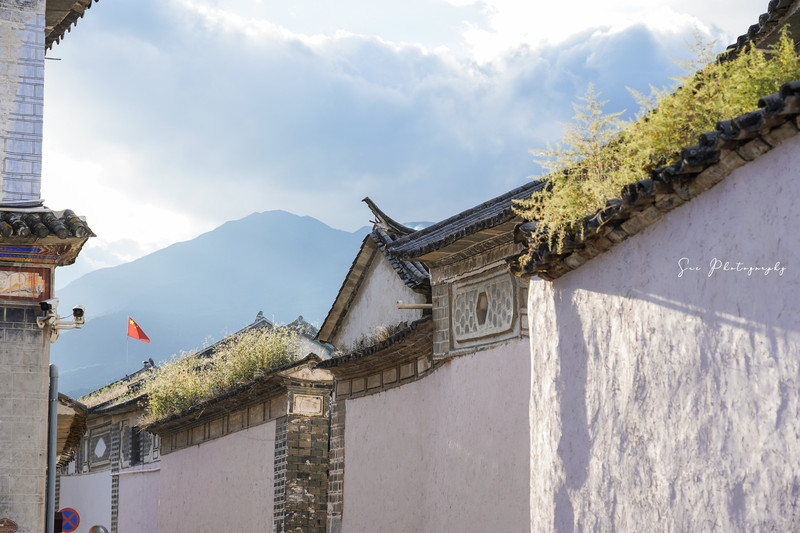
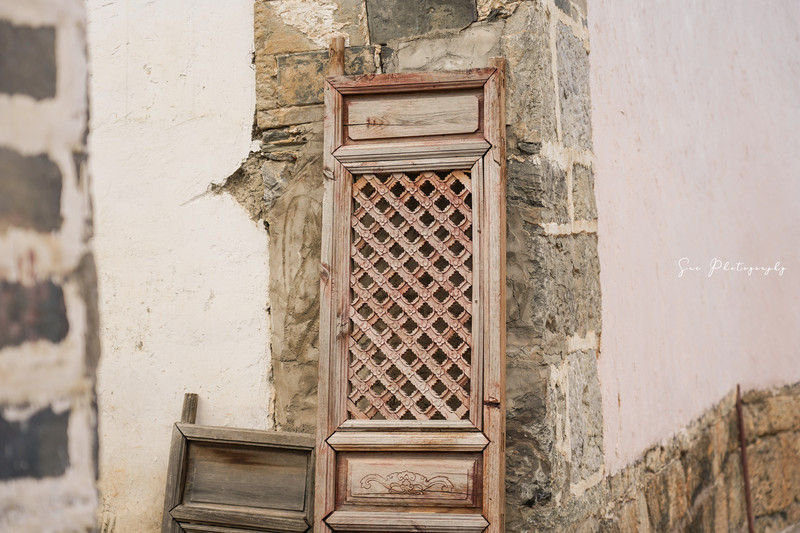
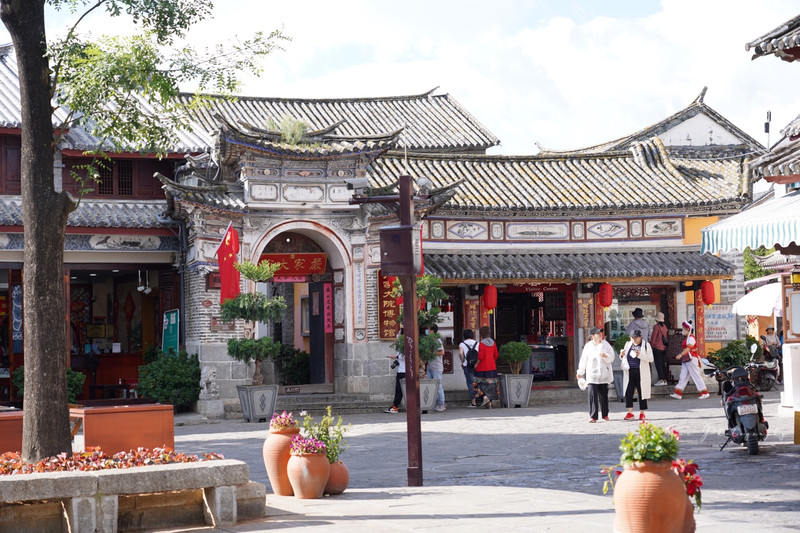
Sifang Street is Xizhou's "Little Hong Kong". On the tall "Title Square", the "Four Families","Eight Middle Families" and "Twelve Small Families" of the Xizhou Commercial Gang silently tell about their past glory. The entrance of the Yan Family Courtyard is also on the square, and now it has become the center of delicious food. It is surrounded by fragrant Xizhou Baba, milky roasted milk fans, steaming casserole rice noodles... many specialty delicacies are hidden.

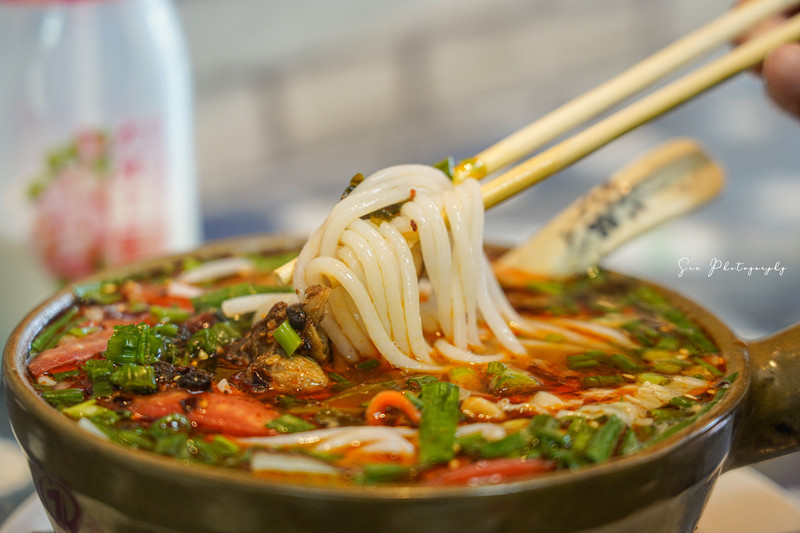








A rice field next to the ancient town is the most attractive sight in Xizhou today. A Bai folk house museum "Xilin Garden" is next to the rice field. The orange walls and rice fields are matched with each other and have become a check-in point for many people. It is also recommended to come by the wrong peak to feel better.

There is a whole row of coffee shops next to the rice fields. Having a cup of coffee facing the fields on a sunny morning or afternoon is indeed a luxurious enjoyment.
The rice fields are golden in September and October.

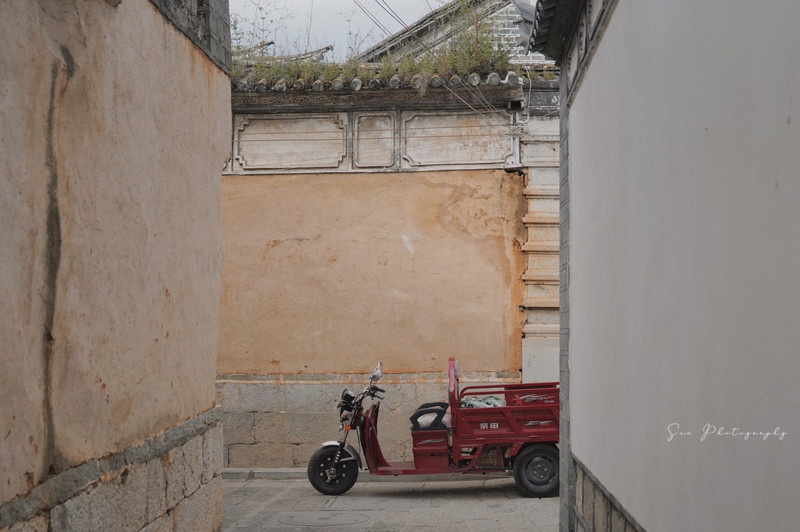


The ancient town of Xizhou has gradually become a "Internet celebrity", perhaps because of the rice fields, or perhaps because of the increasing number of coffee shops, food shops, and handicraft shops. Looking back now, when walking in the ancient town, I was lost in the busy search for photo spots, and ignored the soul of Dali represented by Xizhou. Its thousand-year history, its prosperous old dream, its cultural and architectural heritage... Only after returning did I turn over these inner souls one by one, lamented by the years. I am so ashamed.
During the few days in Dali, I lived in a B & B building in Shacun next to Xizhou Ancient Town. It was a little away from the ancient town, but I gained tranquility.


The room has a large terrace facing the distant landscape painting. When I got up in the morning, I was amazed by the poetry.

The B & B is called Qingsha Residence. Many details in the room are designed by the landlord. I recommend staying here for those who like tranquility and quality.

------------------------------
Recommend two coffee shops in Xizhou
------------------------------
1. Pessoa Pastoral Cafe
Facing a field of Xizhou rice fields, the door is decorated with flowers and plants. Pessoa Cafe is on the edge of Xizhou Ancient Town. It is also a well-known cafe in Dali. It has good production and a good environment, especially the chair sitting in front of the door. Looking at the field scenery in front of you, it is suitable to empty your thoughts.

"Pessoa" is a Portugal writer. Perhaps he longed for the harmony between sunshine and life, which led the director to give him such a name. The coffee is baked by the manager himself. The coffee aroma brought by the fresh, medium and lightly baked beans can make people feel extremely happy.
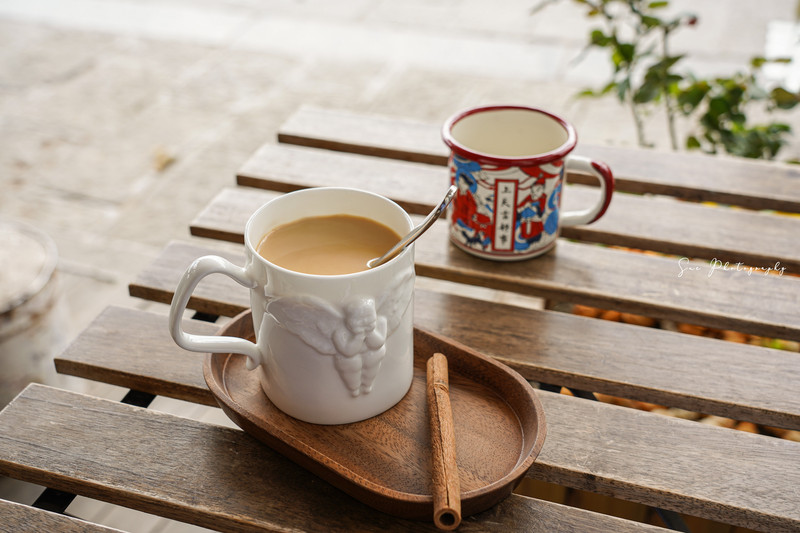
Freshly roasted milk tea has no additives. When added with cinnamon, it gives off a unique aroma. It is my favorite taste.

The enamel cup for hand-brewed coffee is a customized model created by illustrations in cooperation with the designer. It is painted on the door of this cafe. It is so beautiful that I even bought one to take home.

2. Tian Coffee
Tian Coffee is so simple that people won't recognize it as a coffee shop even if they walk by it.

On the countertop with green tiles and old-fashioned wooden boards that have been polished to a smooth finish, simple coffee utensils, Kinu hand mills, Kalita's copper pots and filter cups form the bar. The Japanese-style handmade pottery cups on the wall are displayed one word, which shows the owner's unique hobby for utensils.
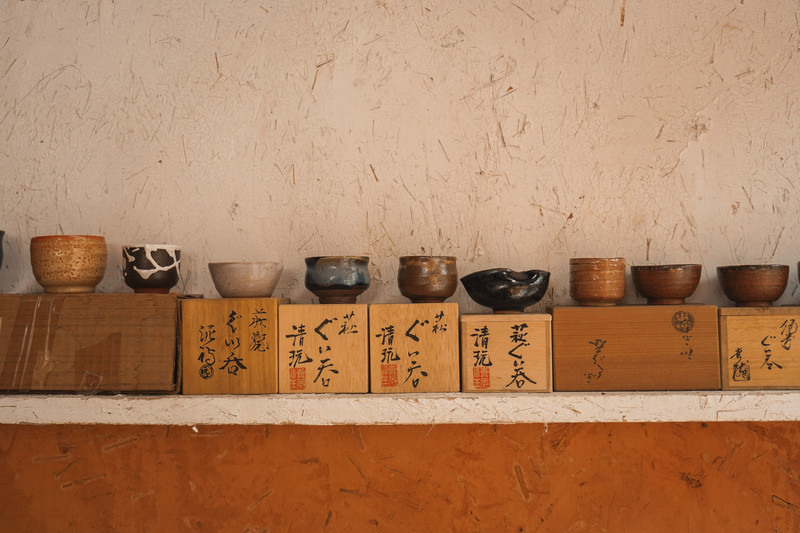

The boss was roasting beans upstairs, and only had the time to make coffee after a while. He used a more Japanese brewing method, focusing as if there was only coffee and himself at that moment, a clean and thorough pot of iron pickup truck, just like its name."Qingyu" is the feeling of Yunnan.
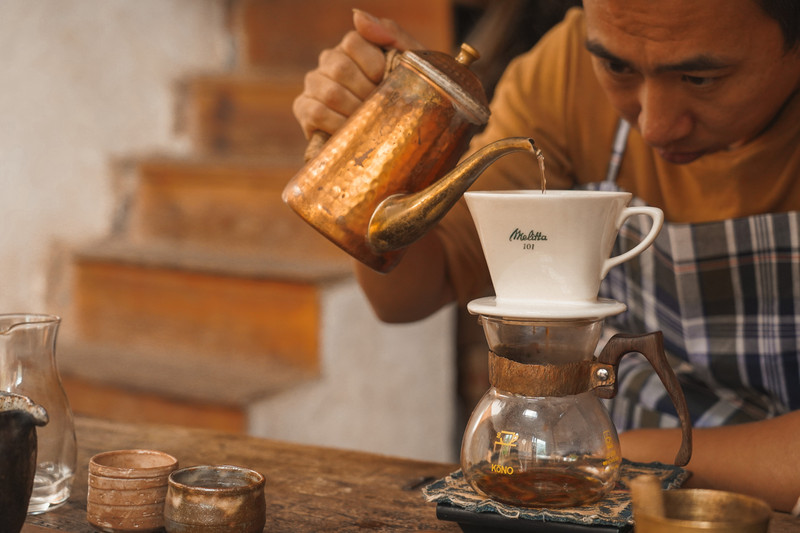


Yes, this is a specialty bakery shop, so it is worth wasting some time to drink a pot of hand-brewed.
Those magical markets in Kunming
On the last day of my return from Kunming, I didn't visit many attractions. What impressed me most were the two markets I visited during the day and at night. They are blessed places that people who like food must not miss. Now I think about it, I just wish I didn't stay for more time to enjoy it.
[Nanqiang Street and Lane]--"The night on Nanqiang Street is a bowl of fireworks that you want."

Nanqiang Street and Lane is a must-visit and the most popular neighborhood in Kunming for night tours. I only have the most straightforward description of it as "a market that is obviously a lot of people but I can't hate it at all."

It is home to special snacks from Kunming, all over Yunnan, the country and even the world. The bustling food street is mixed with the sound of ordering orders, the sizzling sound of food, and the clanging sound of glasses... It moves slowly among the crowd, peeks out, and looks at the diverse food menu. The fireworks here are too willful, and everyone who comes will unconsciously integrate into the hustle and bustle.



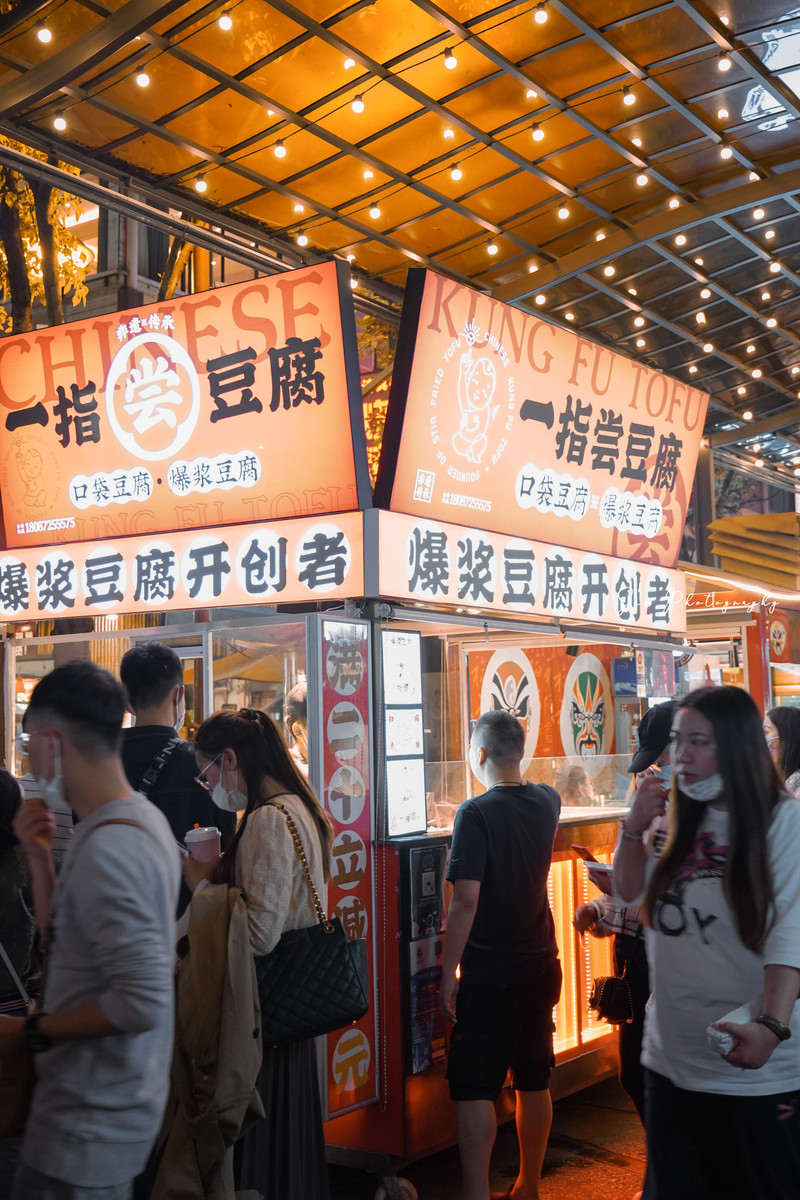



I put away my camera while taking care of eating and packaging food. I am really guilty of not taking too many photos of delicious food. I hope you can feel my sincerity towards delicious food with your heart ~~
-------
[Daguan Zhuan New Farmers 'Market]--"Simple but shining, simple but comforting old Kunming soul"

In Kunming's Zhuanxin Farmers 'Market, local friends will go by themselves or bring friends from other places; bringing 50 yuan is not enough, but bringing 100 yuan may not be enough, because there are so many delicious food! It's not just as simple as the vegetable and fish market. It has everything in it, all kinds of things you see for the first time in your life, and all kinds of delicacies that refresh your taste buds. In short, the new Zhuan market has a mysterious beauty.

Even Chen Xiaoqing, director of "A Bite of China", praised it and directly praised it on the show. Zhuan New Market is a good place to get all Yunnan delicacies in a short period of time. No matter how tight time is, you have to go to Zhuan New Market first when you come to Kunming before you can call it an authentic foodie.

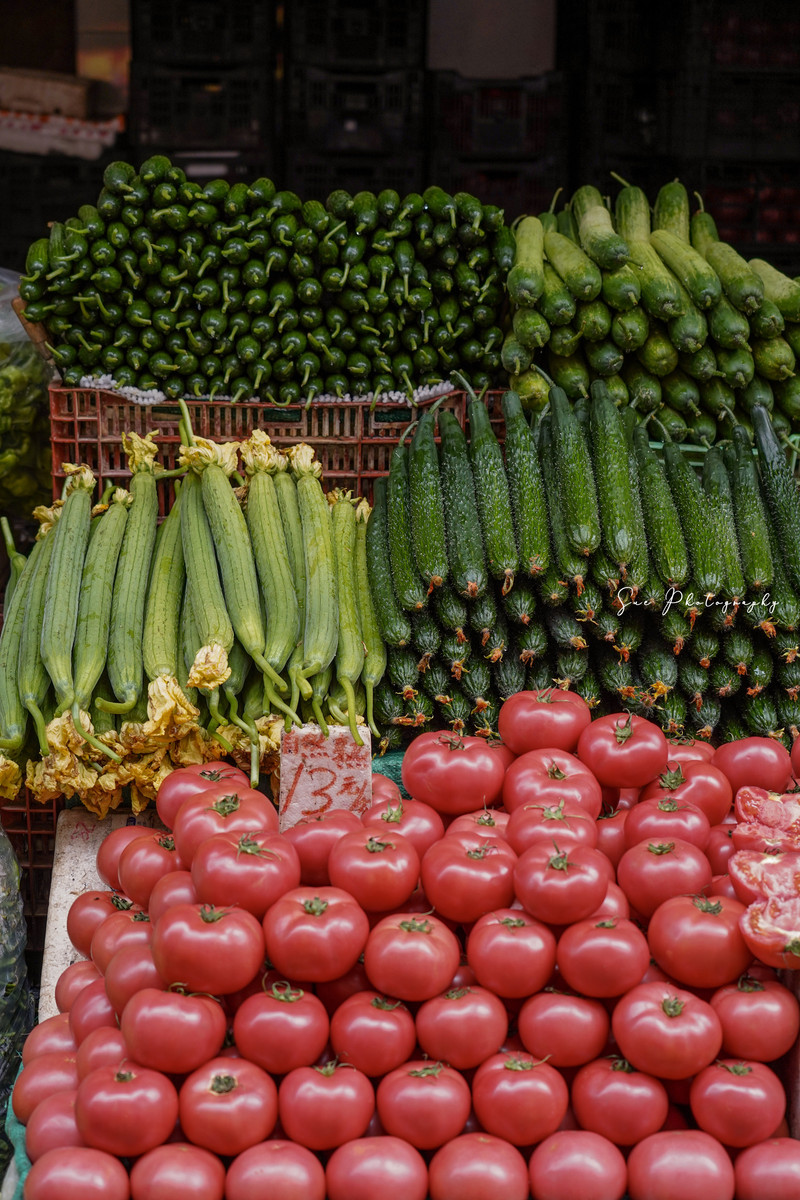



Fruits, vegetables, cooked food, meat, seafood, fungi, flowers, spices... are placed neatly and pleasing to the eye.


I really envy Kunming people to be able to eat a full round while shopping for vegetables. If this is the case, I am willing to come here every day to buy groceries!

There are so many types of vegetables that many of them cannot be named, but they look surprisingly healing.
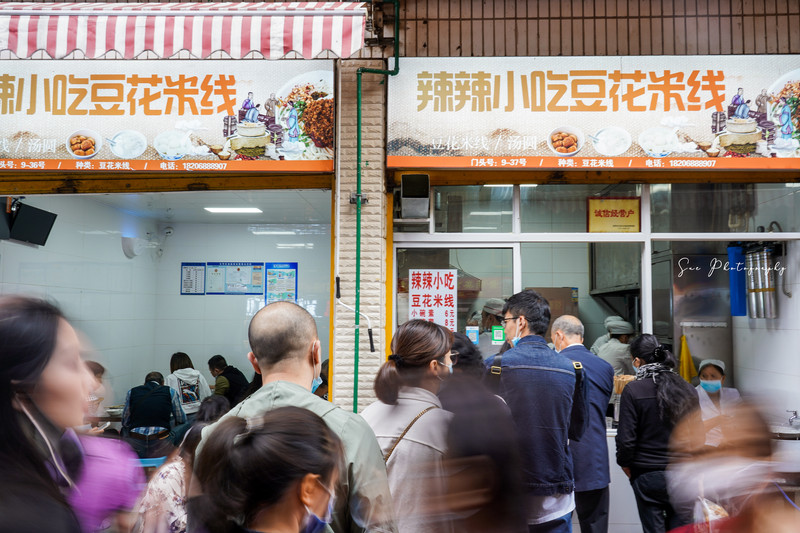
The tofu pudding rice noodles for spicy snacks are simply delicious in the world. The tofu pudding that slides through the mouth and the spicy rice noodles are so delicious! The shop was packed with people, full of diners who came to order or pack their bags.








Zhuan Xin Farmers 'Market has endless cries and endless food, allowing you to feel the most down-to-earth temperature in a city. Even if you are crowded and difficult to move, you can immerse yourself in it without feeling bored at all.
A gai is full of the gentle smell of fireworks in old Kunming. The seasons change and the seasons change, and the stories here never stop. This true and ordinary appearance is the most original taste of life.
Unfinished goodbye
Wait until the next good season, let's go out again.
Having seen mountains, rivers, lakes and seas, and gone through spring, summer, autumn and winter,
I found that every moment of every day, there are various lives,
Thousands of people move forward on different life trajectories,
What reason do we have not to work harder for ourselves?
--To the ordinary and true us
Previous Article:Starting, there is poetry and distance| Cloud Observation in Yunnan
Next Article:Video sharing of Red Longjing, Ancient Town of Dali, Yunnan
